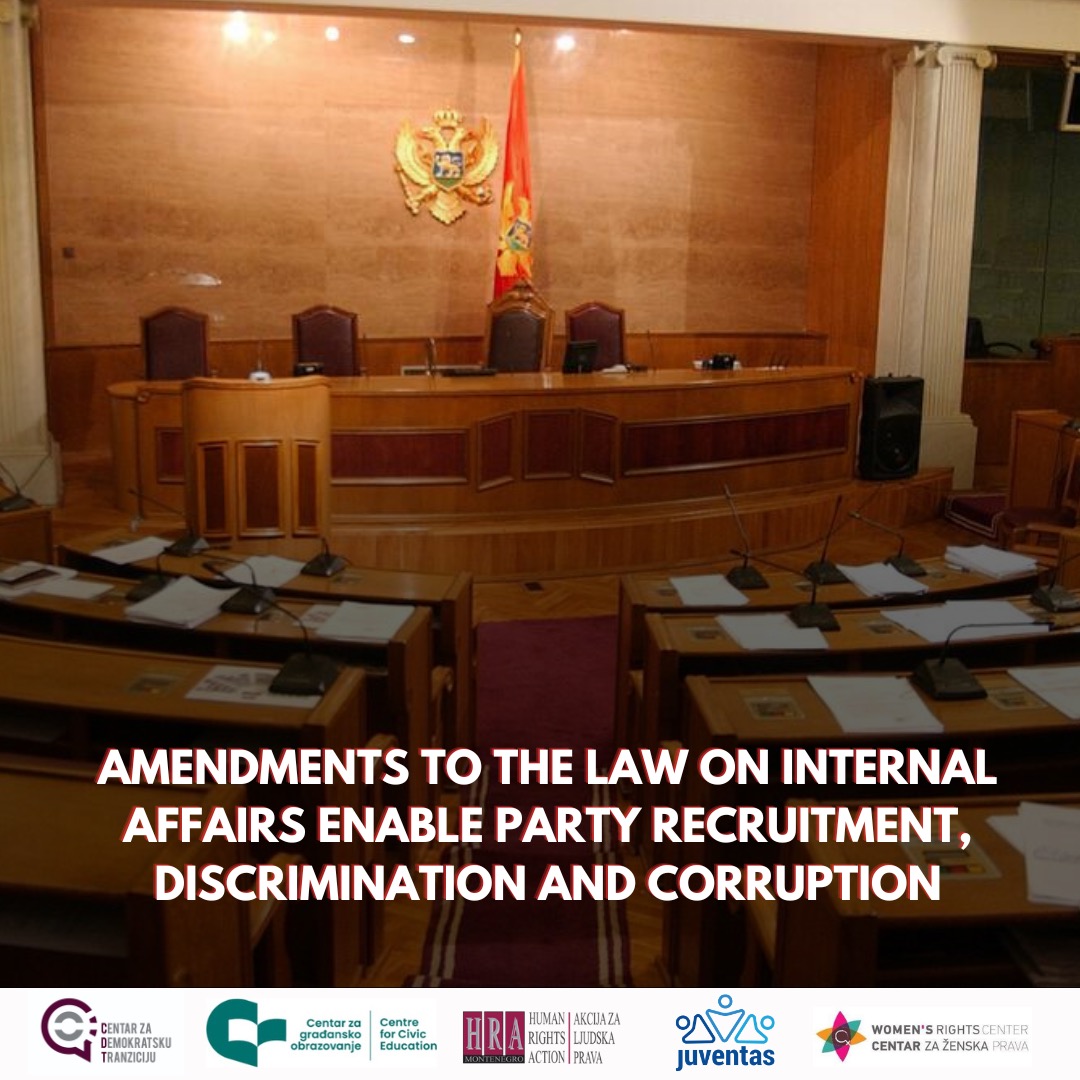
AMENDMENTS TO THE LAW ON INTERNAL AFFAIRS ENABLE PARTY RECRUITMENT, DISCRIMINATION AND CORRUPTION
16/09/2024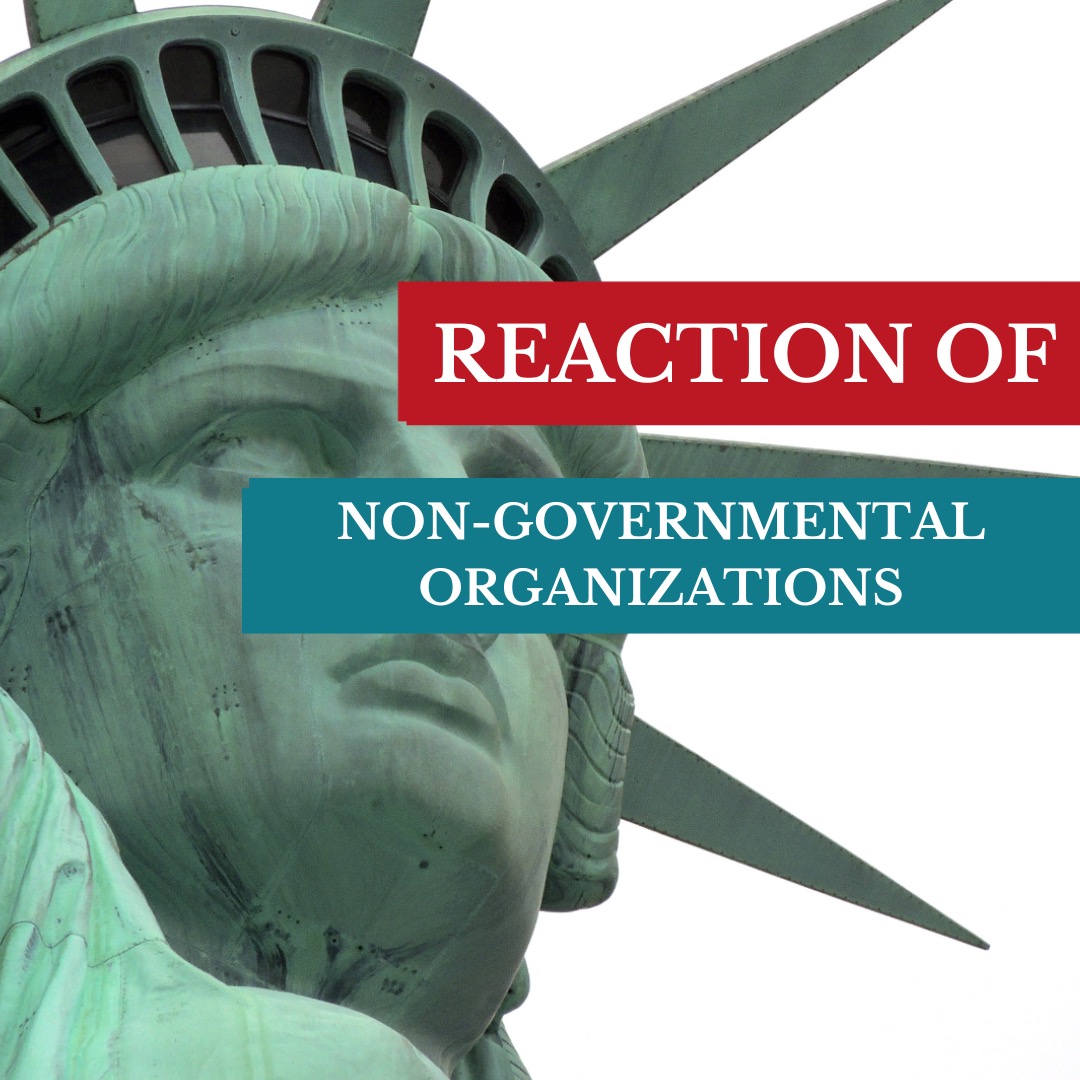
“FOREIGN AGENTS LAW” INITIATIVE BY THE COALITION “FOR THE FUTURE OF MONTENEGRO” IS A POTENTIAL THREAT TO HUMAN RIGHTS AND MONTENEGRO’S EU INTEGRATION
10/10/2024RESEARCH SHOWS THAT MOST JUDGES AND PROSECUTORS SUPPORT THE IMPLEMENTATION OF VETTING, FEW WOULD RESIGN
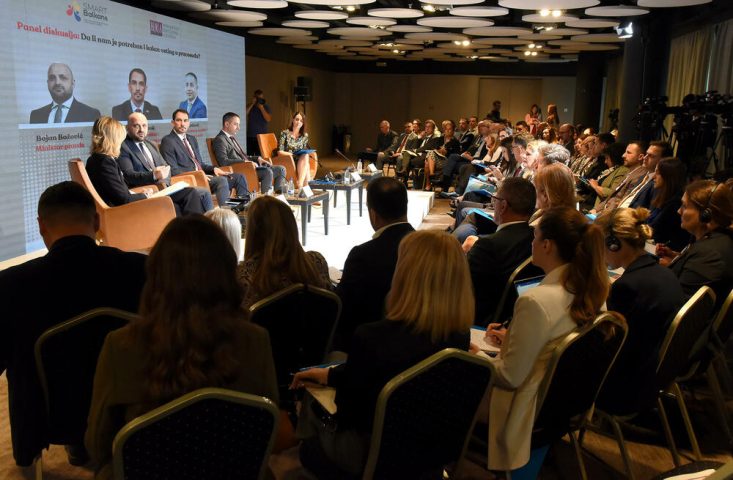
If vetting is implemented in Montenegro, a mechanism for assessing the financial, ethical, and professional integrity of judges and prosecutors, the majority of them would accept the process, according to a survey on the perception of corruption among judicial actors, conducted by the DeFacto Consultancy for the Human Rights Action.
According to the survey, 42.1% of judges agree with the introduction of phased vetting, while the same stance is held by 24.4% of state prosecutors. The research shows that lawyers are the most prepared for the process, with 72.5% in favor, and among expert witnesses, 66.3% support it, said professor Olivera Komar, who presented the analysis.
When it comes to the willingness to undergo vetting, the data is encouraging, says Komar. In response to the question, “What will you do if phased vetting is introduced?” 78% of prosecutors said they would accept the process, while 7.3% responded negatively.
“We only have 7.3% of those who say they would resign, refusing to be part of the vetting process, as they consider it to be a humiliating and unfair procedure,” Komar explained.
Similar figures were recorded when judges answered the same question. A slightly smaller percentage, 71.6%, would accept phased vetting, but there are also fewer judges who oppose the process—only 3.2% reject it. A quarter of the judges do not know what this process specifically entails because they are not familiar with it, the survey shows.
Komar says that despite this, “the level of support is a very good starting point for the implementation of vetting.”
The research also showed that those within the judicial system perceive the existence of corruption in their ranks to a lesser extent than those outside the system. Specifically, lawyers and experts identify this problem to a significantly greater degree compared to those in judicial positions.
The survey involved 40.1% of prosecutors (41), 34.7% of judges (95), 43.8% of experts (92), and 6.8% of lawyers (109). The results were presented at the conference “Vetting in the Montenegrin Judiciary,” organized by the Human Rights Action (HRA) as part of the project “Reforming the Judiciary for the Rule of Law.” HRA is implementing this project with the support of the regional project “SMART Balkans – Civil Society for a Connected Western Balkans,” which is implemented by the Center for Promotion of Civil Society (CPCD) with partners, and is financially supported by the Ministry of Foreign Affairs of the Kingdom of Norway.
“Vetting is necessary; we only need to find the best way to implement it”
Bojan Božović, the Minister of Justice, stated at the opening panel of the conference that implementing vetting in Montenegro requires political will. However, he emphasized that this process is not necessary for day-to-day political reasons; rather, it aims to ensure that “clean” individuals do not carry the shadows of those who have misused their positions. He also believes that the process must be thoroughly prepared to avoid jeopardizing the system.
“There is a concern that we might compromise the right to a fair trial. If we prepare this project properly, I believe we can overcome these challenges,” Božović remarked.
Additionally, he noted that this process cannot be completed in a few months; instead, it will require years for proper implementation. He is not in favor of applying what is referred to as radical vetting.
“I want the process to be transparent, with clear procedures and no skipping of steps. I have been communicating with Brussels (EU) for a long time and understand their concerns. However, I believe that if we prepare adequately for all the challenges that vetting entails, we can overcome them,” said Božović.
The minister also believes that the vetting mechanism should not be applied only in the judiciary, but should also be expanded to the executive branch. He thinks it is fair that those who choose members, for example, of the Judicial Council, should also be vetted.
The Supreme State Prosecutor Milorad Marković stated during the panel that it is important for the state to take a definitive stance on whether we are starting the vetting process or not, as we do not have much time. He said that Montenegro needs this mechanism, but it should not be implemented ad hoc or under political influence.
“I believe that this process should be carried out without any political influence in any way (…). We need to conduct adequate vetting, proper assessments, and after completion, we should have the results we expect,” Marković said, noting that this process is not as painful as it might seem.
The judge of the Basic Court in Podgorica and member of the Judicial Council, Rade Ćetković, stated that “clean” judges do not perceive vetting as a witch hunt, but also that those who mention this process do not all have sincere intentions. He explained that checks in the judiciary should not serve to settle scores with dissenters, but rather to benefit the citizens.
“I would appeal for vetting to be a process that is carefully designed (…) and for all judges who pass the vetting to be reinstated under satisfactory conditions,” he said.
He also clarified that it is essential to improve the conditions in which judges work before implementing the vetting process.
Before entering the vetting process, the state must evaluate its potential impact on the judiciary’s functioning and ensure it does not lead to a collapse,” stated Tea Gorjanc-Prelević, Executive Director of the Human Rights Action, during her opening remarks.
She highlighted that Montenegro is currently facing a shortage of 60 judges and 25 prosecutors—nearly one-fifth of the required workforce—and that, on average, judges are handling 700 litigation cases. Additionally, she pointed out that 10 criminal proceedings are ongoing against high-ranking judges and prosecutors, as well as two former police directors and several other former top police officials.
“There is, therefore, a reasonable suspicion that the mafia in Montenegro has deeply infiltrated the state system, including the upper echelons of both the police and judiciary,” stated Gorjanc-Prelević. She further observed that some individuals within the judiciary and prosecution service, who have “illegally received apartments or favorable loans from the government,” would fail a vetting process like the one carried out in Albania.
“Despite such behavior eroding trust in their independence, these individuals continue to wield their authority, and the current system does not challenge them,” added Gorjanc-Prelević. She also reminded that there are still no checks for potential ties to organized crime or foreign intelligence services for judicial or prosecutorial candidates, Judicial and Prosecutorial Council members, Constitutional Court judge candidates, or for the President of the Supreme Court or the State Prosecutor. Only past convictions are currently being verified.
Experiences of Albania and Moldova in Implementing Vetting
At the conference, within the panel “Comparative Experiences of Vetting for the Benefit of Montenegro,” discussions were held about the experiences of countries that are already actively implementing checks in their judicial systems.
In Albania, this process began in 2018. Pjereta Agalliu, a law professor at the University of Tirana, stated that unlike Montenegro, which first initiated criminal proceedings against high-ranking judicial officials accused of corruption and abuse of power, the vetting process in Albania went in the opposite direction. They first conducted a cleansing of the judicial system, followed by criminal investigations.
According to her, from February 8, 2018, to July 31, 2024, the Independent Qualification Commission made 783 decisions, of which 261 decisions (33.3%) concerned the removal of judges and prosecutors.
“The majority of dismissals were due to non-disclosure of assets. Specifically, 61.2% of the subjects of the vetting process were dismissed following asset checks, while only 31.6% were dismissed based on more than one criterion,” Agalliu stated.
She believes they have created a more efficient system by “removing individuals who did not fulfill their role as guardians of the law and protectors of human rights.”
The judge of the District Court in Tirana, Manjola Xhaxho, who successfully passed the vetting process in Albania, stated that this process needed to happen in her country, but its prolonged duration has caused stress throughout the entire system. She emphasizes that members of the commission for the vetting of judicial officials must possess integrity, and that after a decision regarding a possible dismissal, there must be someone to take over the cases of the sanctioned judge or prosecutor. The state must also further motivate these judges and prosecutors to work under additional pressure, and Albania has done this by increasing salaries and providing more favorable working conditions.
Somewhat later than Albania, the vetting process in the judiciary began in Moldova. In April 2022, they started pre-vetting, with the vetting of judges and candidates for the Supreme Court commencing in July 2023, while the vetting of judges and state prosecutors in key positions began in May and June of this year.
All of these processes are taking place in parallel,” stated Nadejda Hriptievschi, a member of the pre-vetting commission in Moldova. She noted that these are one-time procedures that are not conducted periodically.
From June 2022 to December 2023, the Evaluation Commission carried out the vetting process for 68 candidates for membership in the Supreme Judicial Council and the Supreme Prosecutorial Council. Out of 68 candidates, 45 did not pass pre-vetting, while 23 candidates were successful, Hriptievschi reported.
When asked what Montenegro must do to successfully vet its judiciary, she emphasized that the basic prerequisite is a clear legal framework, but that it is not only about that.
“What is most important are the resources, but it is also necessary to have people who are outside the system, preferably from abroad. This way, the process could be more objective. A good fiscal and tax system is needed to verify false contracts and uncover assets, both movable and immovable,” Hriptievschi explains.
Considering which model of vetting is most suitable for Montenegro and what can be done within the existing legal framework, lawyer Predrag Mugoša noted that decision-makers in Montenegro have abandoned the idea of a radical vetting process like that in Albania. He agrees with this unless there is a complete loss of trust in the judiciary.
“Until then, I believe we should utilize everything that our current Constitution and laws offer, but there are significant reserves to make progress,” he asserts.
He mentioned that constitutional amendments are needed to carry out vetting. However, the entire process could potentially start as early as tomorrow by sending inquiries to judges regarding the acquisition of their assets.
Key Consensus and Strengthening Institutions
Valentina Pavličić, a candidate for the president of the Supreme Court, and Miodrag Iličković, a member of the Judicial Council, agree that the implementation of vetting in Montenegro requires an agreement among all three branches of government. Pavličić states that the entire process must be carried out in accordance with the law and the Constitution, and that no one should fear it.
“I believe that anyone who honorably holds a judicial position cannot be against vetting or integrity checks, as they must walk through Montenegro with their heads held high. Without such office holders, we cannot move forward,” she said.
Jelena Đaletić, the president of the Association of State Prosecutors, stated during the discussion that vetting is an ad hoc process and that it is logical to ask the question—what next?
“We must strengthen the institutions that would carry out regular checks… A salary can be a motivation to stay in the judiciary, but it cannot guarantee integrity,” Đaletić concluded.
Stevo Muk, a member of the Prosecutorial Council and president of the NGO Institute Alternative, believes that additional checks on the expertise of judges and prosecutors are unnecessary. However, he thinks that what has been lacking so far is a security check for those applying for judicial positions. “Security services could provide such reports for assessment to the Prosecutorial or Judicial Council, but there is no legal framework for that. I believe Montenegro should introduce a system of regular checks, as well as extraordinary ones based on reports,” Muk stated. In addition, he raised the question of whether the commission, which could potentially be part of the integrity verification system for judges and prosecutors, can be trusted sufficiently.
Mladen Tomović, a member of the Council of the Agency for the Prevention of Corruption, called for caution during the discussion regarding the introduction of new verification mechanisms.
He claims that the phased vetting process is only possible if three prerequisites are met: “Financial independence of the judiciary and the state prosecution (…), improvement of the system for selecting and renewing personnel, and retaining good staff by increasing salaries and providing support from advisors.”
Lawyer Veselin Radulović stated that vetting should also include lawyers and that he is ready to be the first to undergo such verification. He warned that it is essential to prevent judges and prosecutors found lacking in integrity from “ending up” in the legal profession. “There is no corruption in the judiciary without the involvement of lawyers,” he said, recalling manipulations with official defenses and delays in trials related to organized crime and corruption, through which lawyers “mock the judiciary.”
The president of the Basic Court in Podgorica, Željka Jovović, stated that she is ready to undergo vetting, as is the president of the Association of Court Experts, Marko Lakić. He noted that “it is not normal for a court president to earn less than the director of a state-owned enterprise.”
“A politician or minister can be anyone, but a judge of the High or Supreme Court cannot—many years of education and experience are required,” Lakić said.
- Pjereta Agalliu, Lecturer at the Faculty of Law, University of Tirana: Analysis “Legal And Practical Dimensions of The Re-Evaluation Procedure for Judges and Prosecutors in Albania from an Analytical Perspective” and Power Point Presentation
- Nadejda Hriptievschi, a member of the pre-vetting commission in Moldova: Analysis “Presentation on Lessons from The Pre-Vetting Process in the Republic of Moldova“
- Predrag Mugoša, retired lawyer: Analysis “Judicial reform to the rule of law – Vetting in the judiciary: What can be done in Montenegro within the framework of the current constitutional norms?” (in Montenegrin)
- Ph.D. Olivera Komar, DeFacto Consultancy agency for public opinion research: “Perception of corruption by actors in the judiciary: Results of quantitative research” (in Montenegrin)
Photographer: Filip Roganović
- Tea Gorjanc Prelević, HRA Executive Director
- Bojan Božović, Minister of Justice
- Milorad Marković, Supreme State Prosecutor and President of the Prosecutorial Council
- Rade Ćetković, Judge of the Basic Court in Podgorica, member of the Judicial Council
- Olivera Komar, professor at the Faculty of Political Sciences and co-owner of DeFacto Consultancy
- Bojana Malović, legal advisor at HRA
- Pjereta Agalliu, Lecturer at the University of Tirana
- Manjola Xhaxho, Judge of the District Court in Tirana
- Nadejda Hriptievschi, a Member of the Pre-vetting Commission in Moldova
- Predrag Mugoša, retired attorney
- (from left to right) Miodrag Pešić, President of the Administrative Court and President of the Association of Judges of Montenegro; Ralf Reuch, Deputy Ambassador of the German Embassy in Montenegro and Marija Popović Kalezić, Executive Director of the Center for Civil Liberties
- (from left to right) Stevo Muk, member of the Prosecutorial Council and President of the Executive Board of the NGO Alternative Institute; Boris Marić, lawyer; Lejla Dervišagić, Head of the Program Office of the Council of Europe in Montenegro; Duško Milanović, Head of the Basic State Prosecutor’s Office in Podgorica
- Željka Jovović, President of the Basic Court in Podgorica
- Maylis de Verneuil, Advisor for European integration at the Ministry of European Affairs
- Andrej Raspopović, lawyer and member of the Board of Directors of the Bar Association; Valentina Pavličić, former Representative of Montenegro before the ECtHR; Željka Jovović, President of the Basic Court in Podgorica
- Miodrag Iličković, member of the Judicial Council
- (from left to right) Jelena Đaletić, prosecutor in the Supreme State Prosecutor’s Office and deputy Supreme State Prosecutor; Maja Jovanović, prosecutor in the Supreme State Prosecutor’s Office; Andrej Raspopović, lawyer and member of the Board of Directors of the Bar Association
- f(rom left to right) Veselin Radulović, lawyer; Vlado Dedović, representative of the Delegation of the European Union in Montenegro
- Nada Bjeković, President of the Court for Misdemeanors in Podgorica; Pavle Ćupić, President of the Council of the Agency for the Prevention of Corruption
- Ksenija Mišović, representative of the OSCE office in Montenegro
- Marija Vuksanović, project coordinator at the Program Office of the Council of Europe in Montenegro
- (from left to right) Milan Smolović, President of the High Court in Bijelo Polje; Željko Pejović, head of the Basic State Prosecutor’s Office in Nikšić
- Veselin Radulović, attorney
- (from left to right) Stevo Muk, member of the Prosecutorial Council and president of the Executive Board of the NGO Alternative Institute; Boris Marić, lawyer
- (from left to right) Marko Lakić, President of the Association of Court Experts of Montenegro; Darko Dragović, MP and representative of the Committee for Political System, Judiciary and Administration
- (from left to right) Željka Jovović, President of the Basic Court in Podgorica; Anjet Lanting, UN’s Human Rights Adviser in Montenegro; Veselin Radulović, lawyer
- Lejla Dervišagić, Head of the Program Office of the Council of Europe in Montenegro
- Danka Živković, Head of the Basic State Prosecutor’s Office in Kotor
- Katarina Peković, Representative of Montenegro before the European Court of Human Rights in Strasbourg
- Alisa Nikezić, representative of the OSCE office in Montenegro
- (from left to right) Milan Smolović, president of the High Court in Bijelo Polje; Mirsad Mujević, president of the Basic Court in Rozaje, Željko Pejović, head of the Basic State Prosecutor’s Office in Nikšić



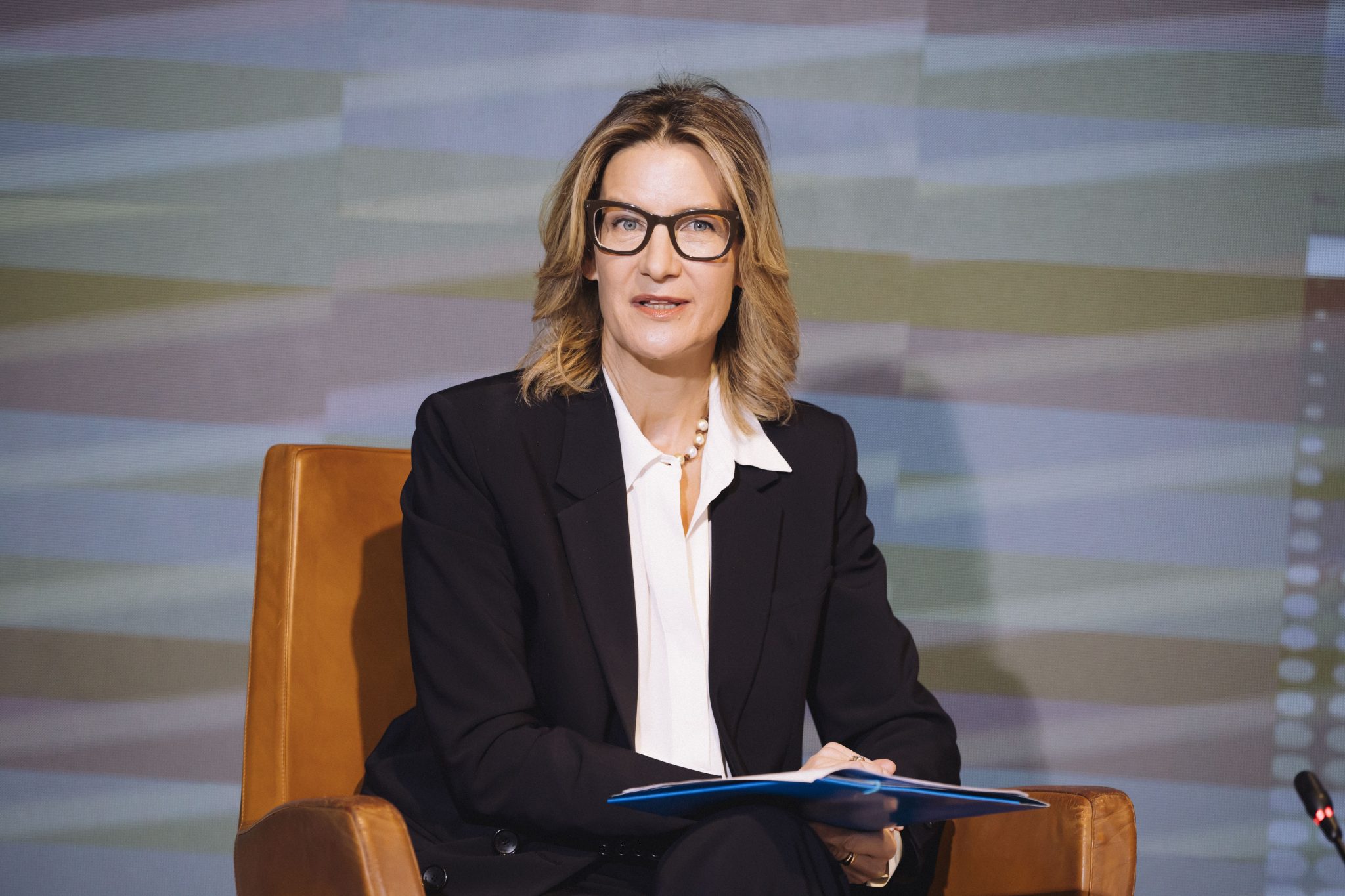
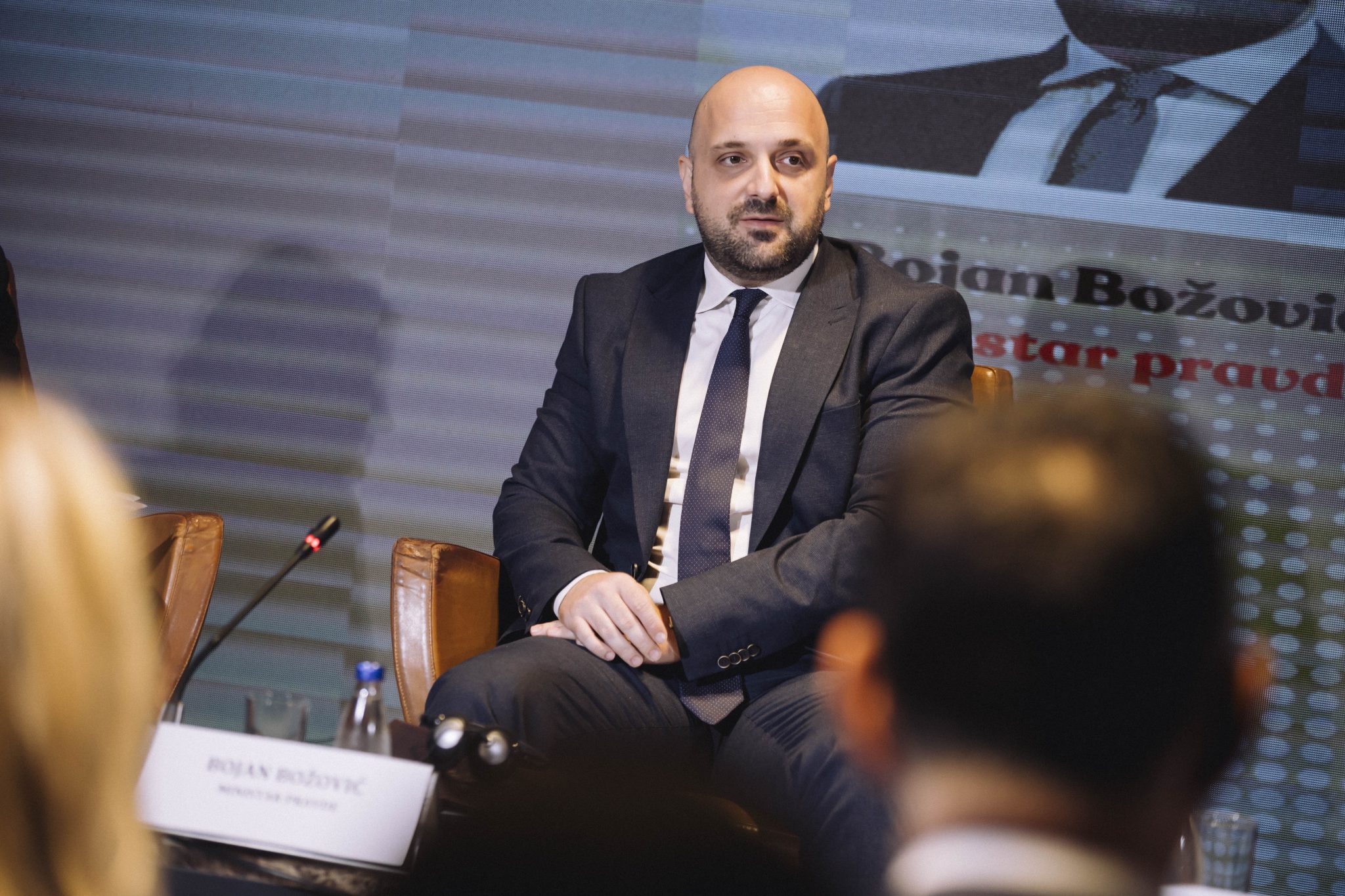
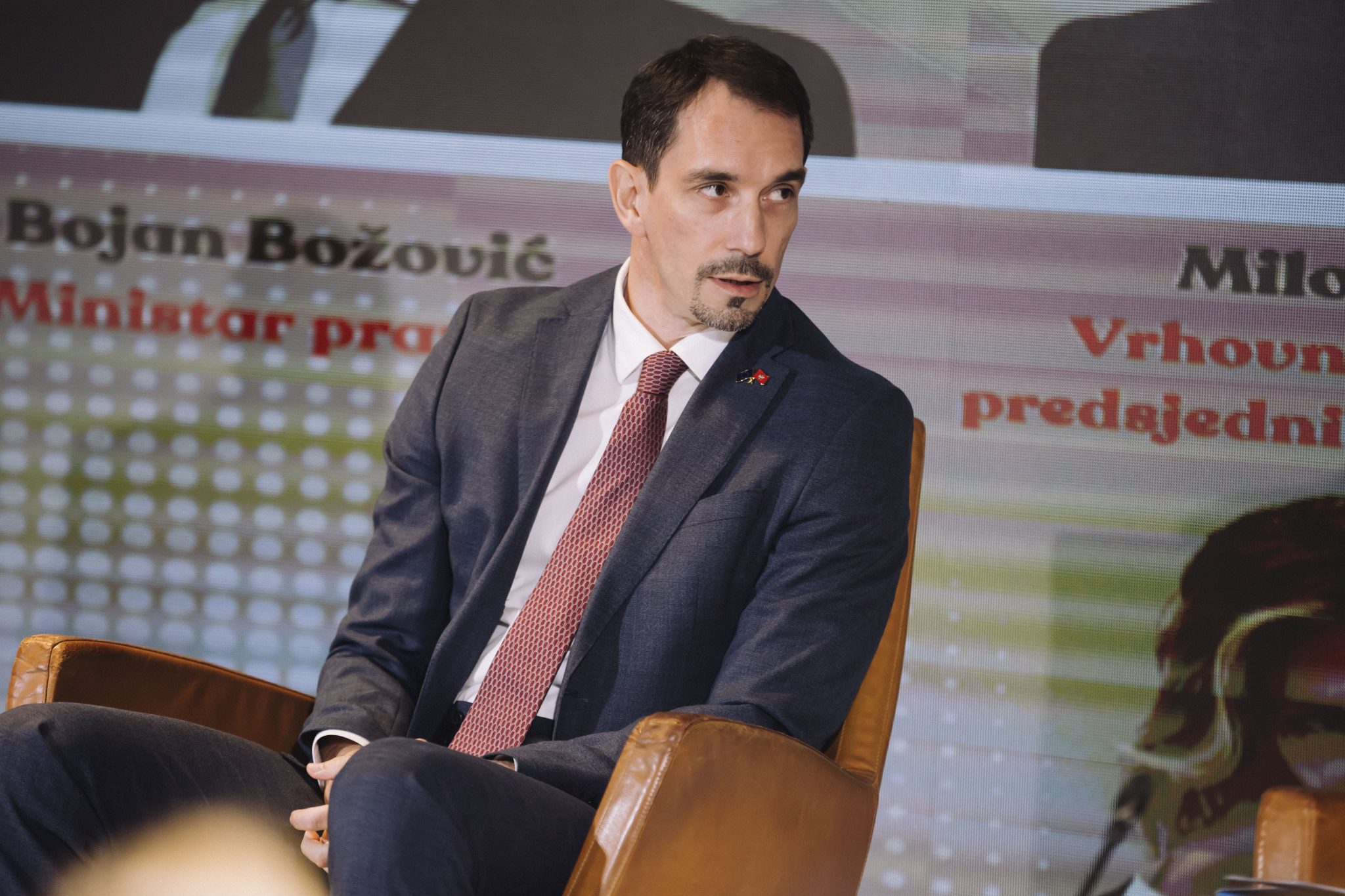
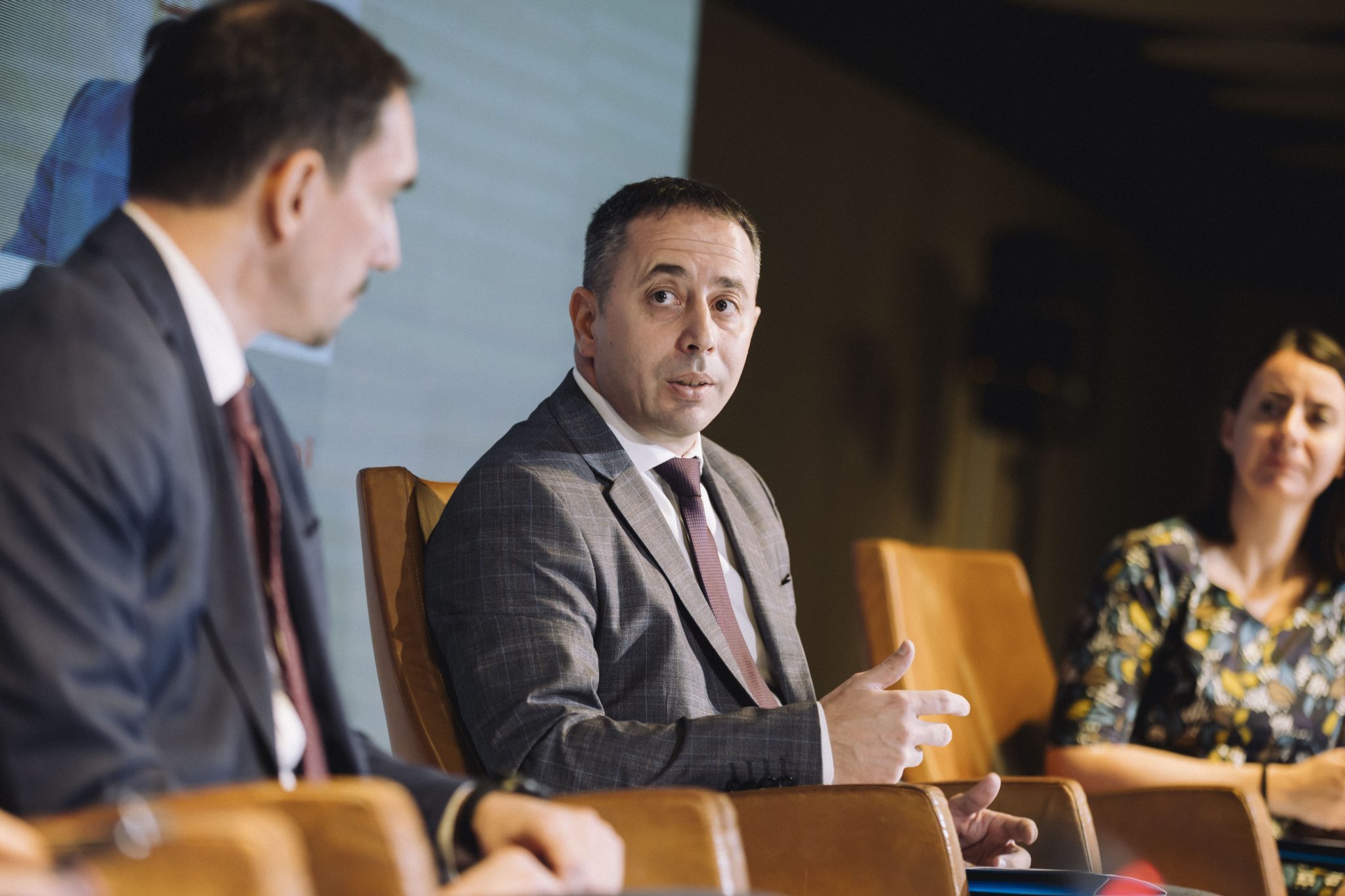
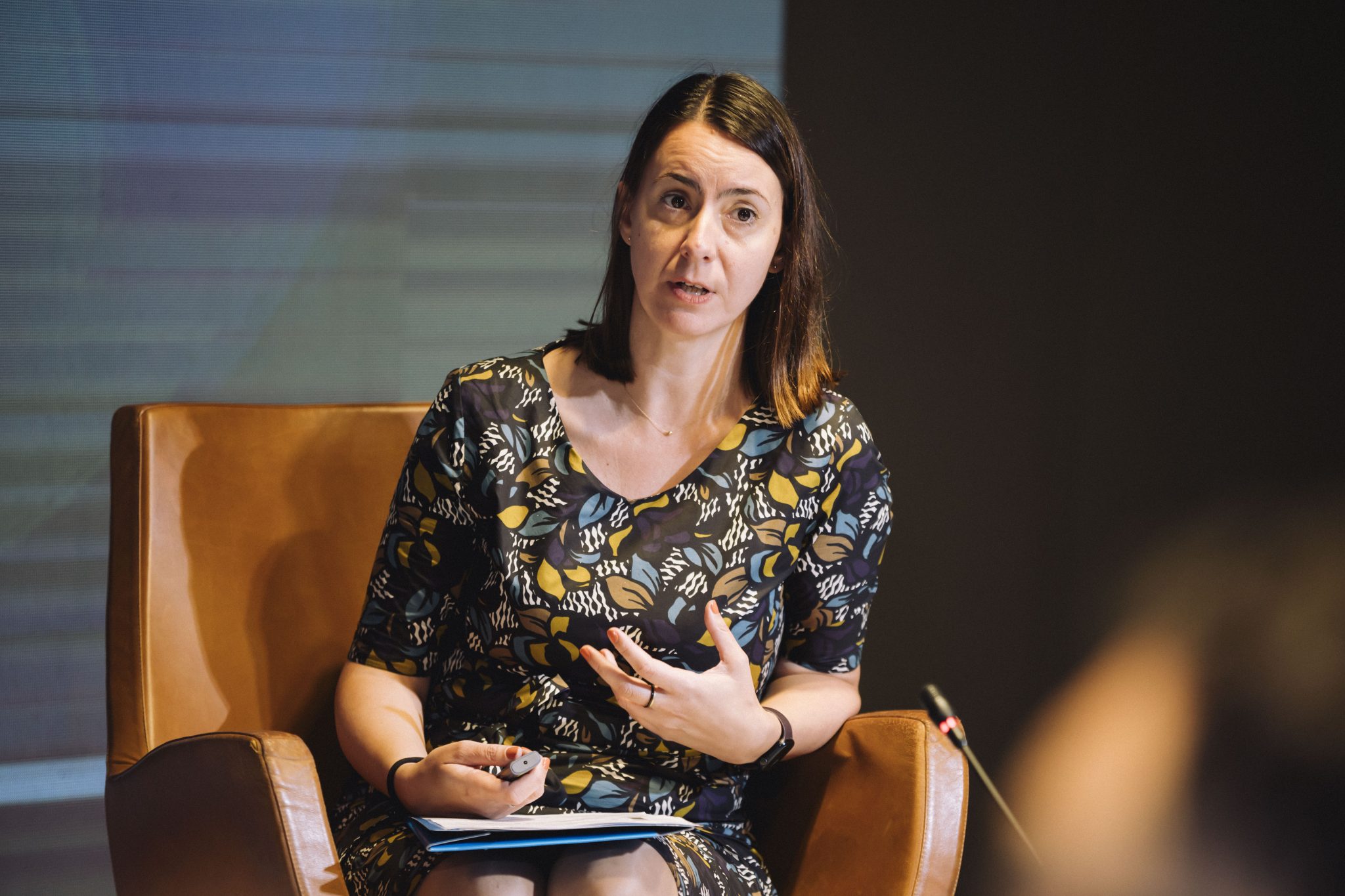

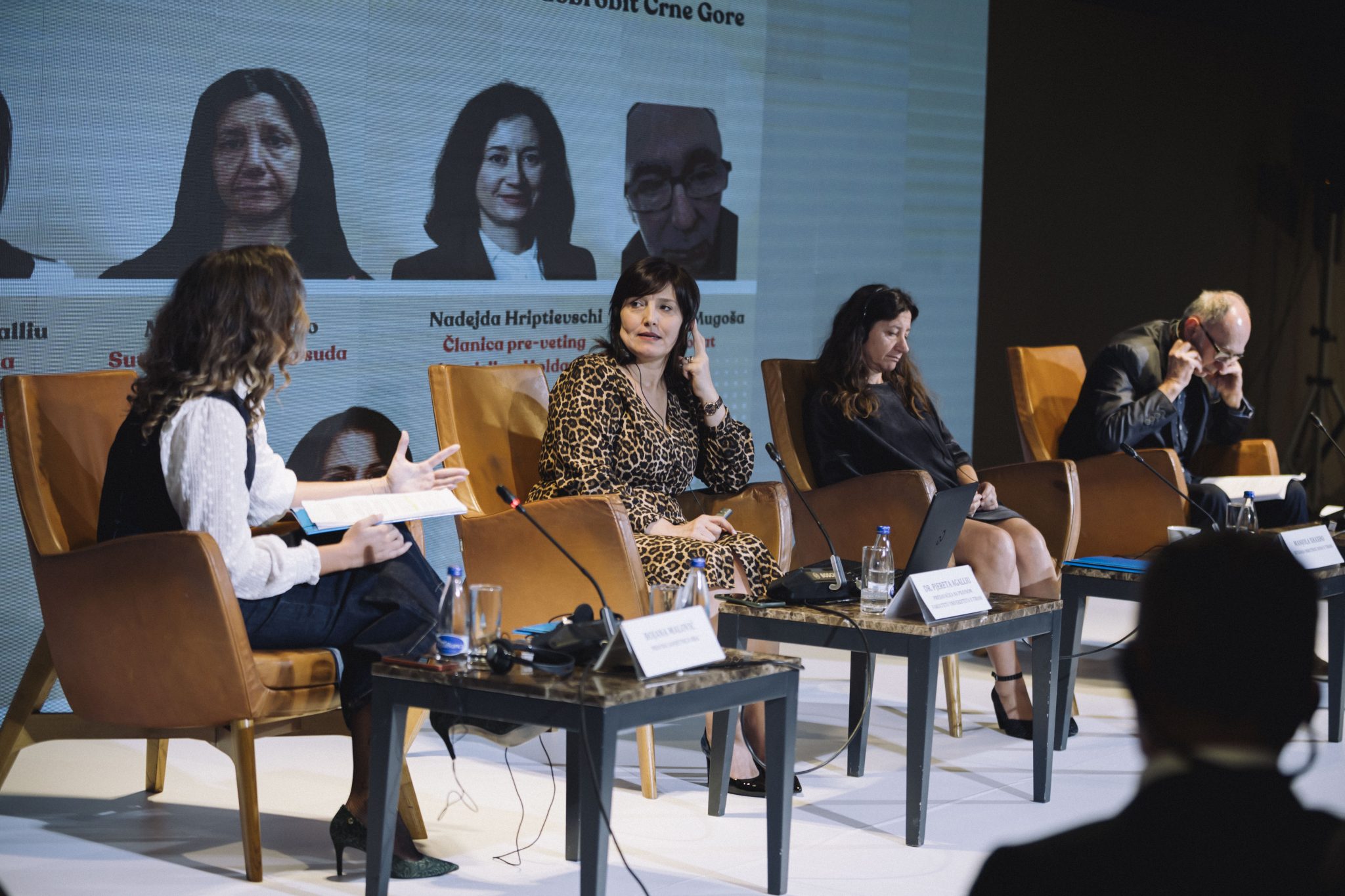
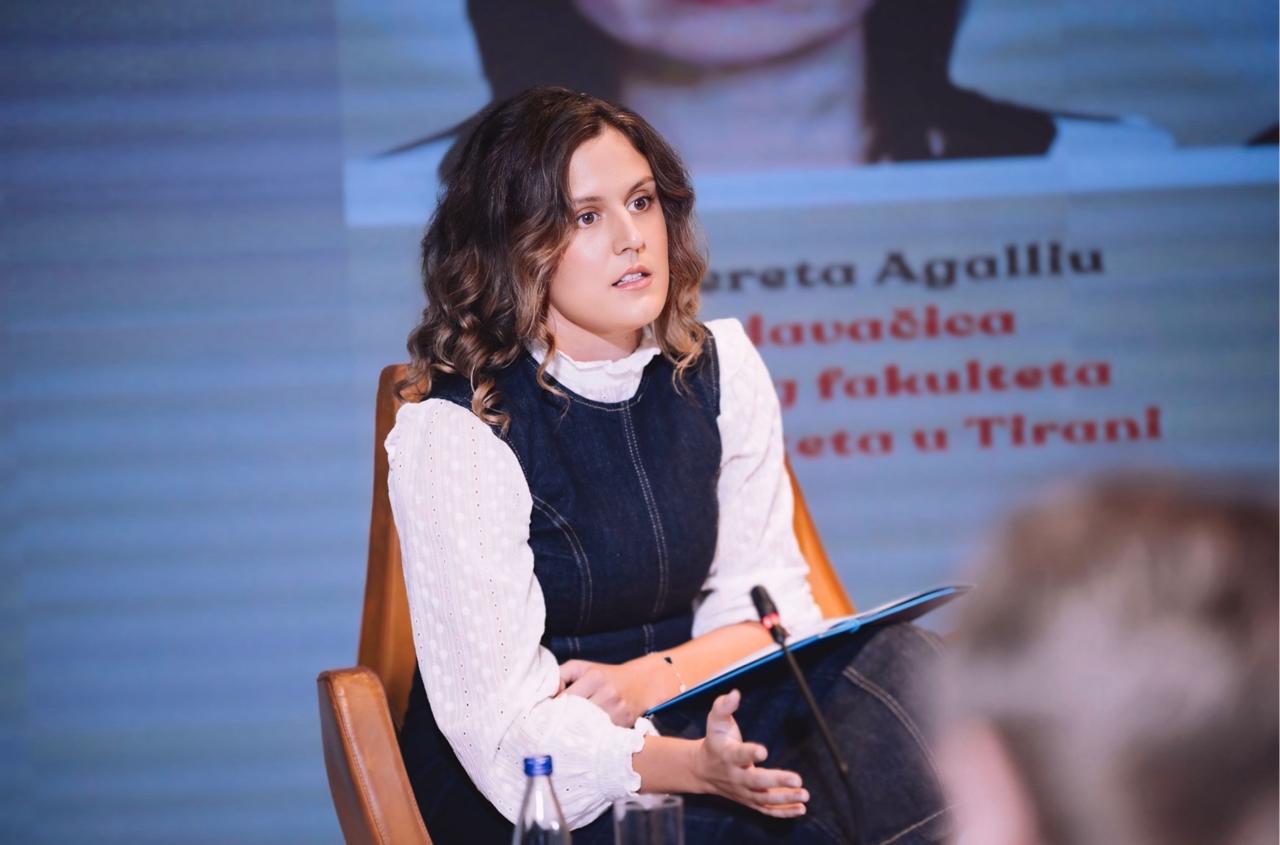
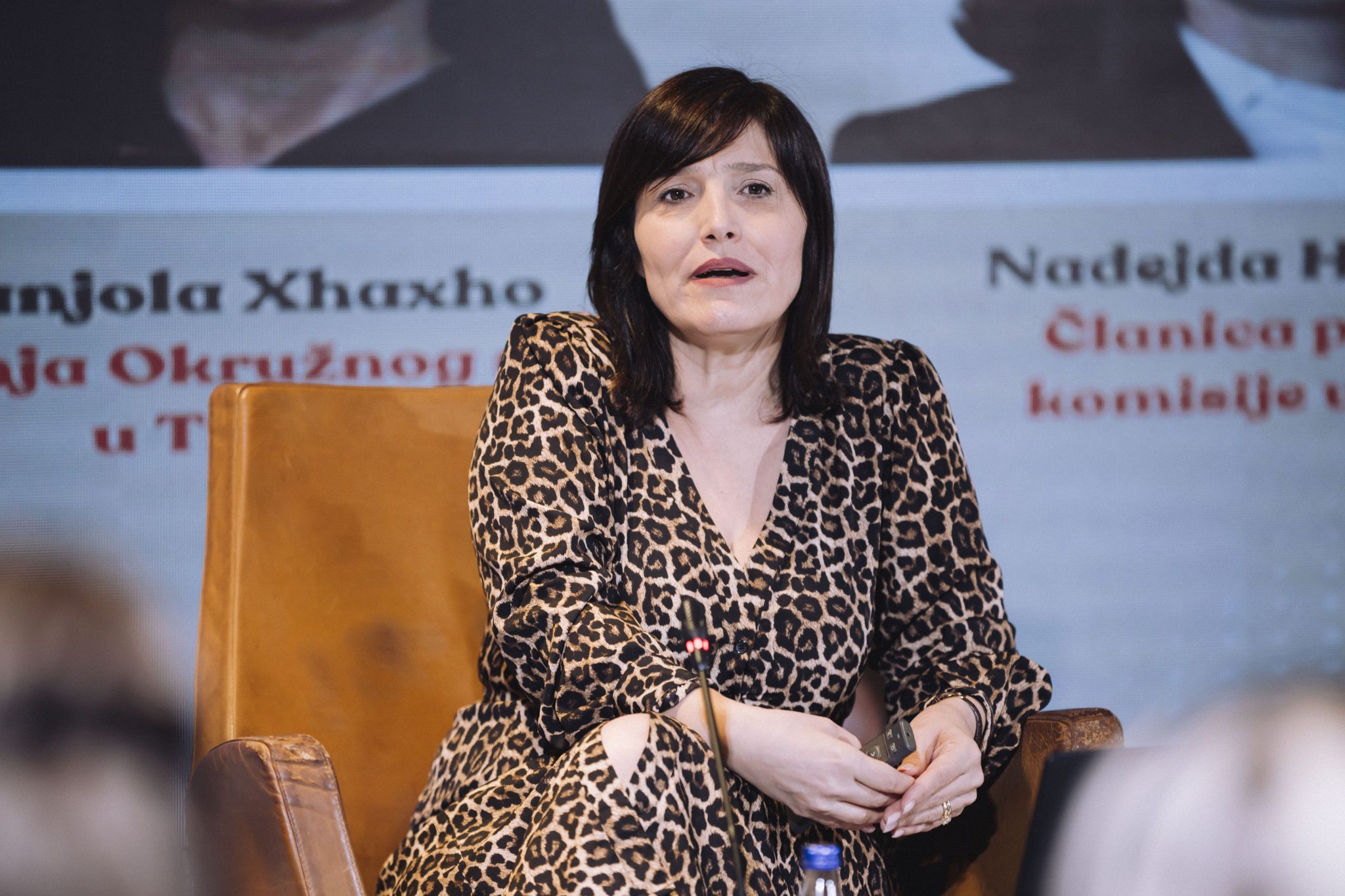
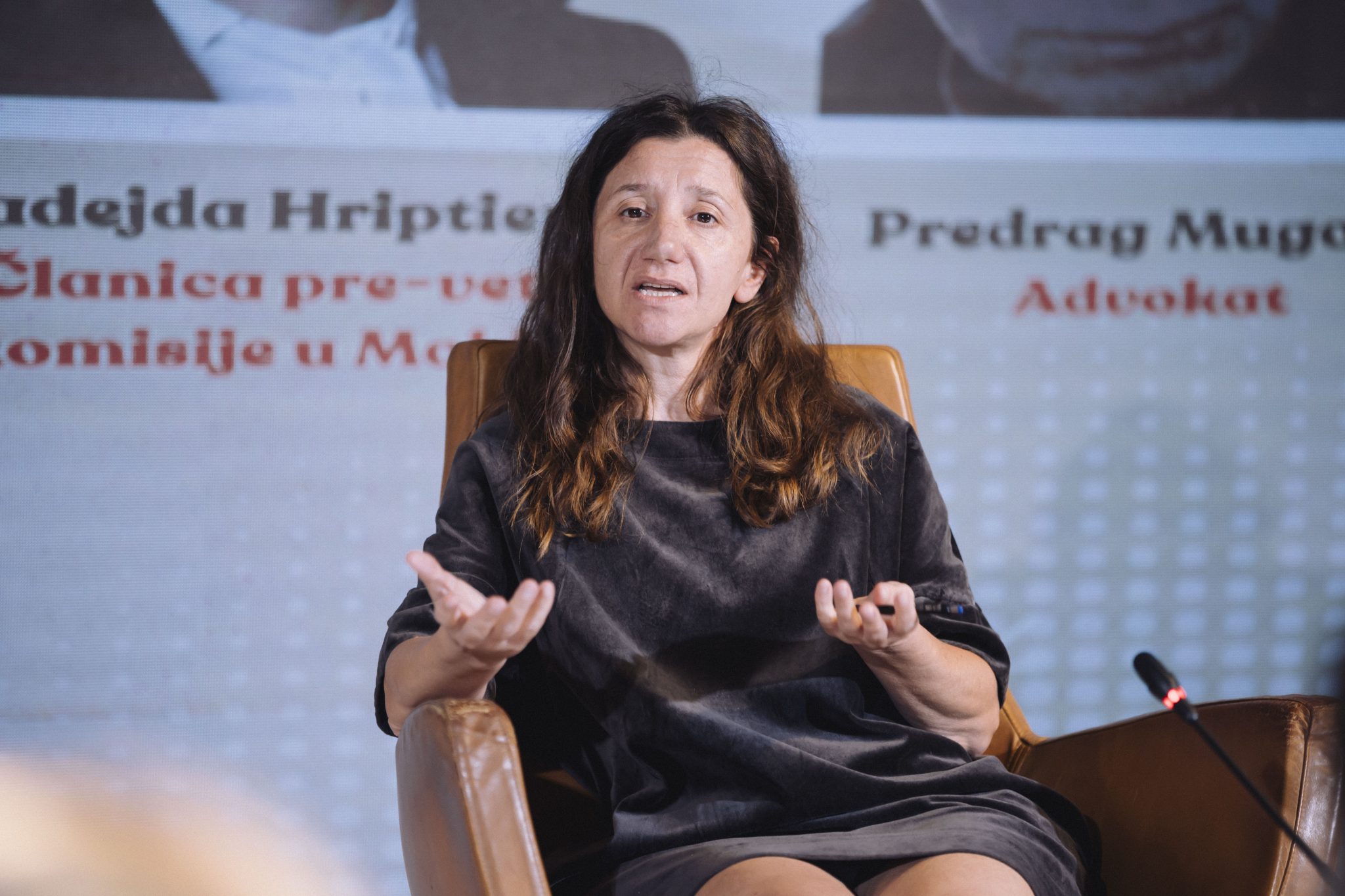
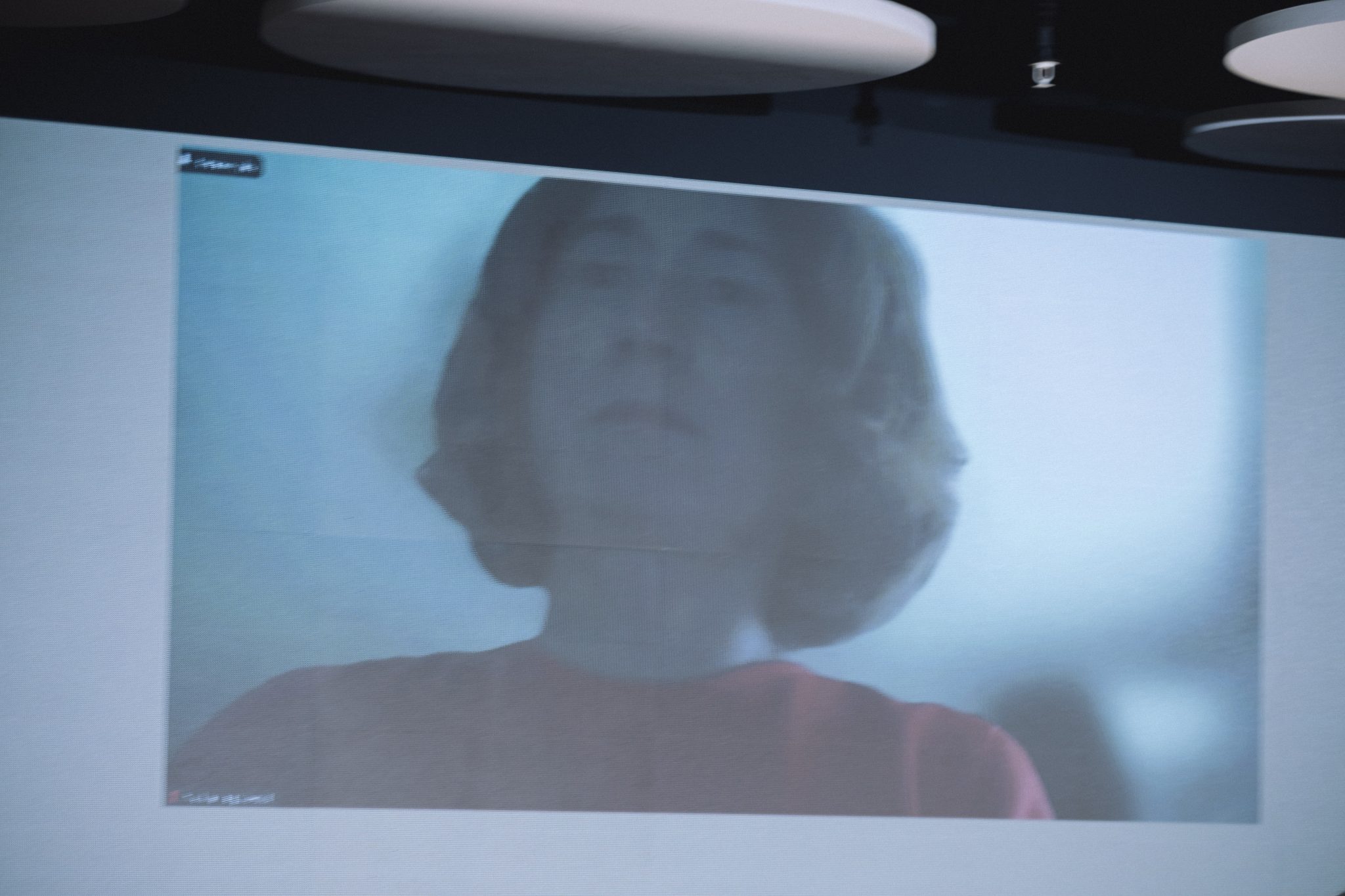
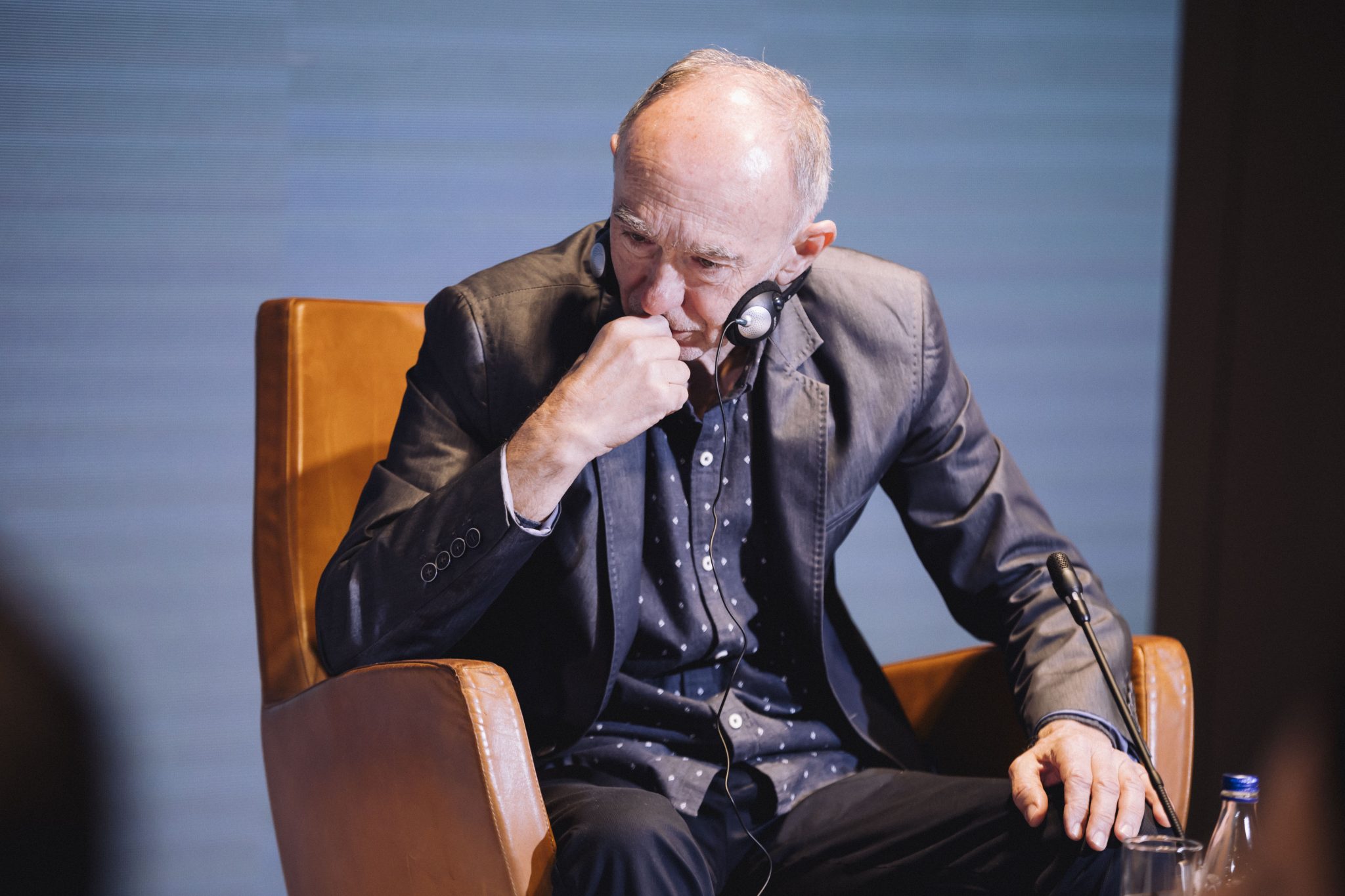
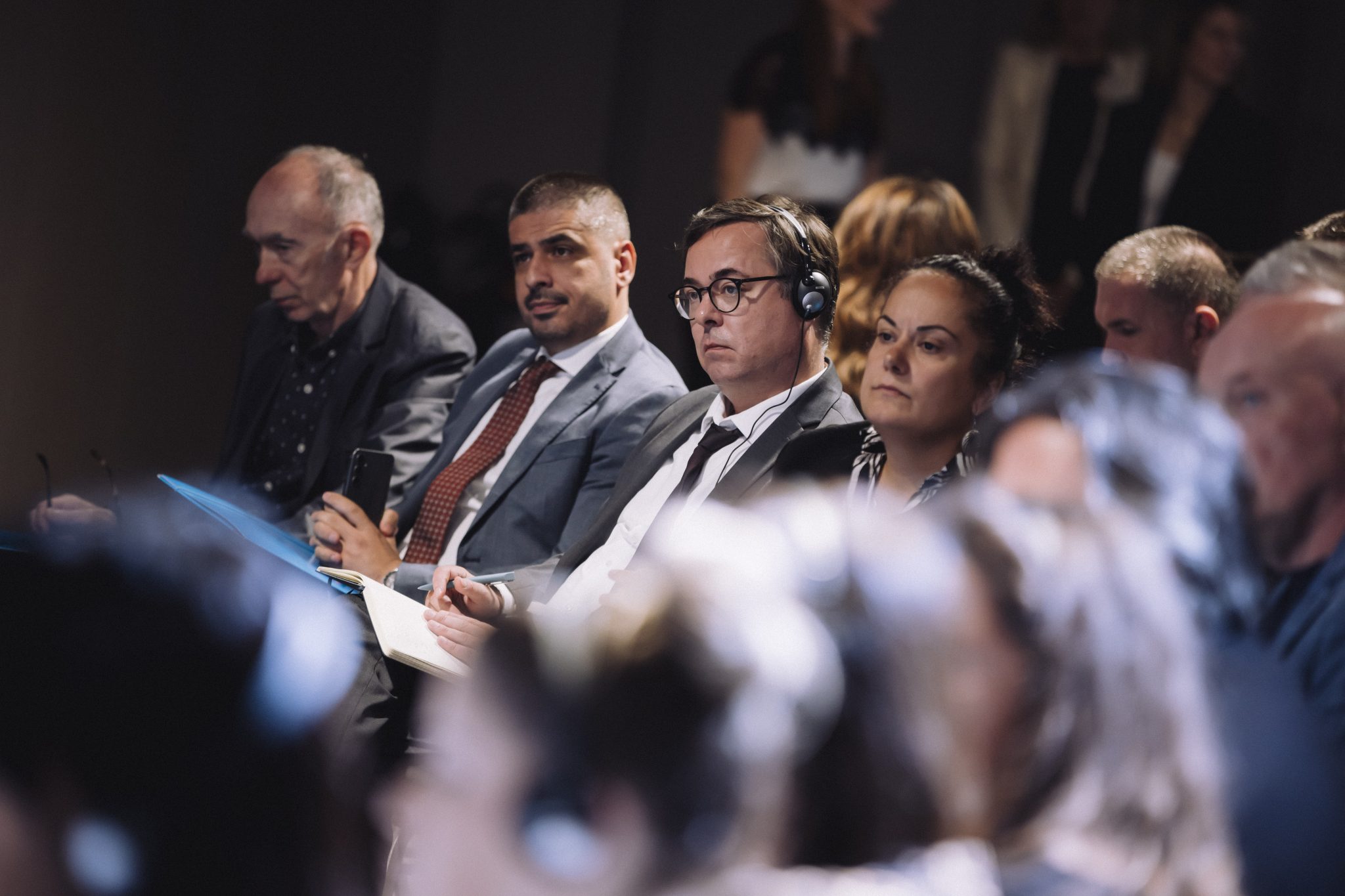
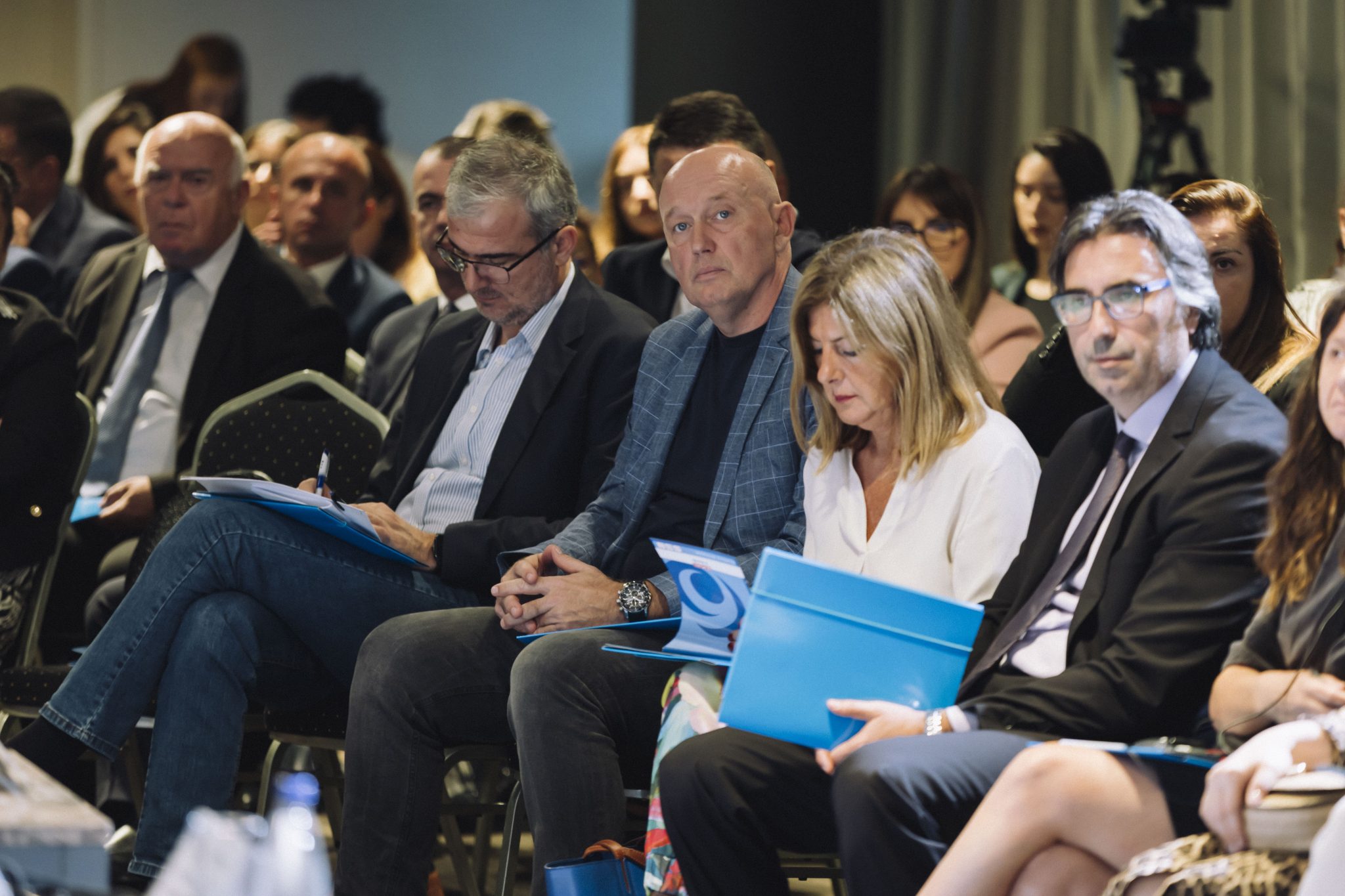
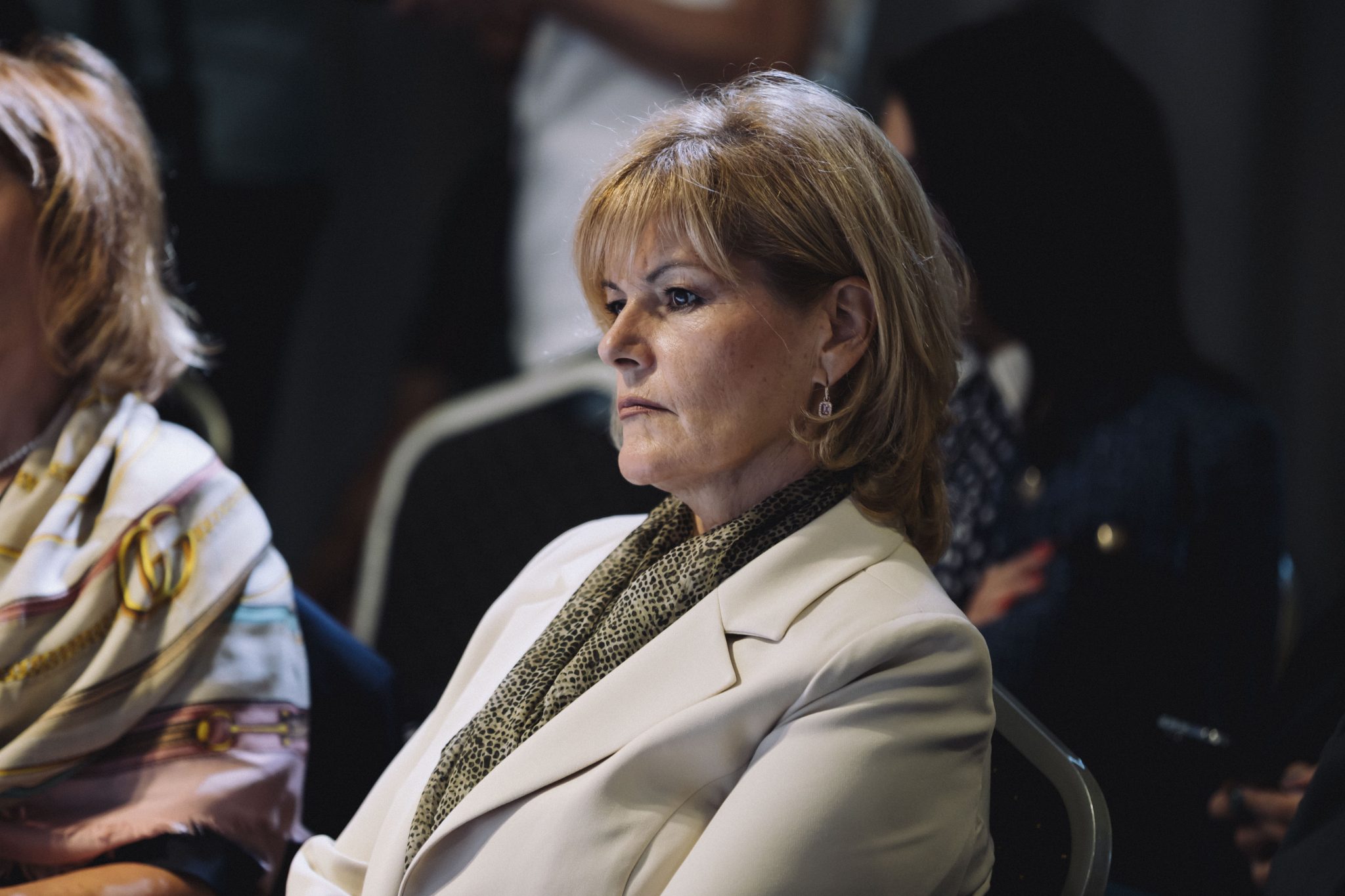
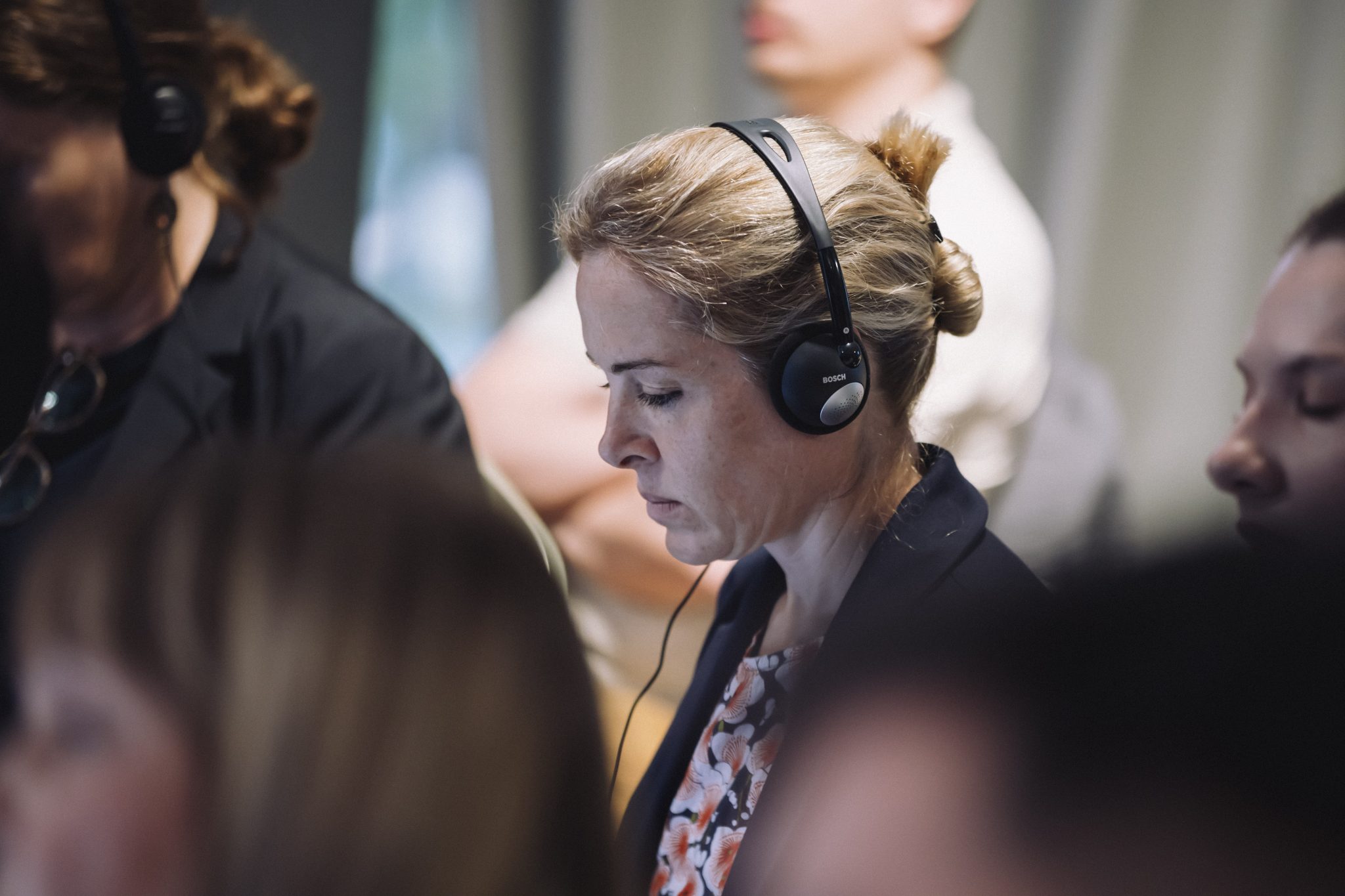
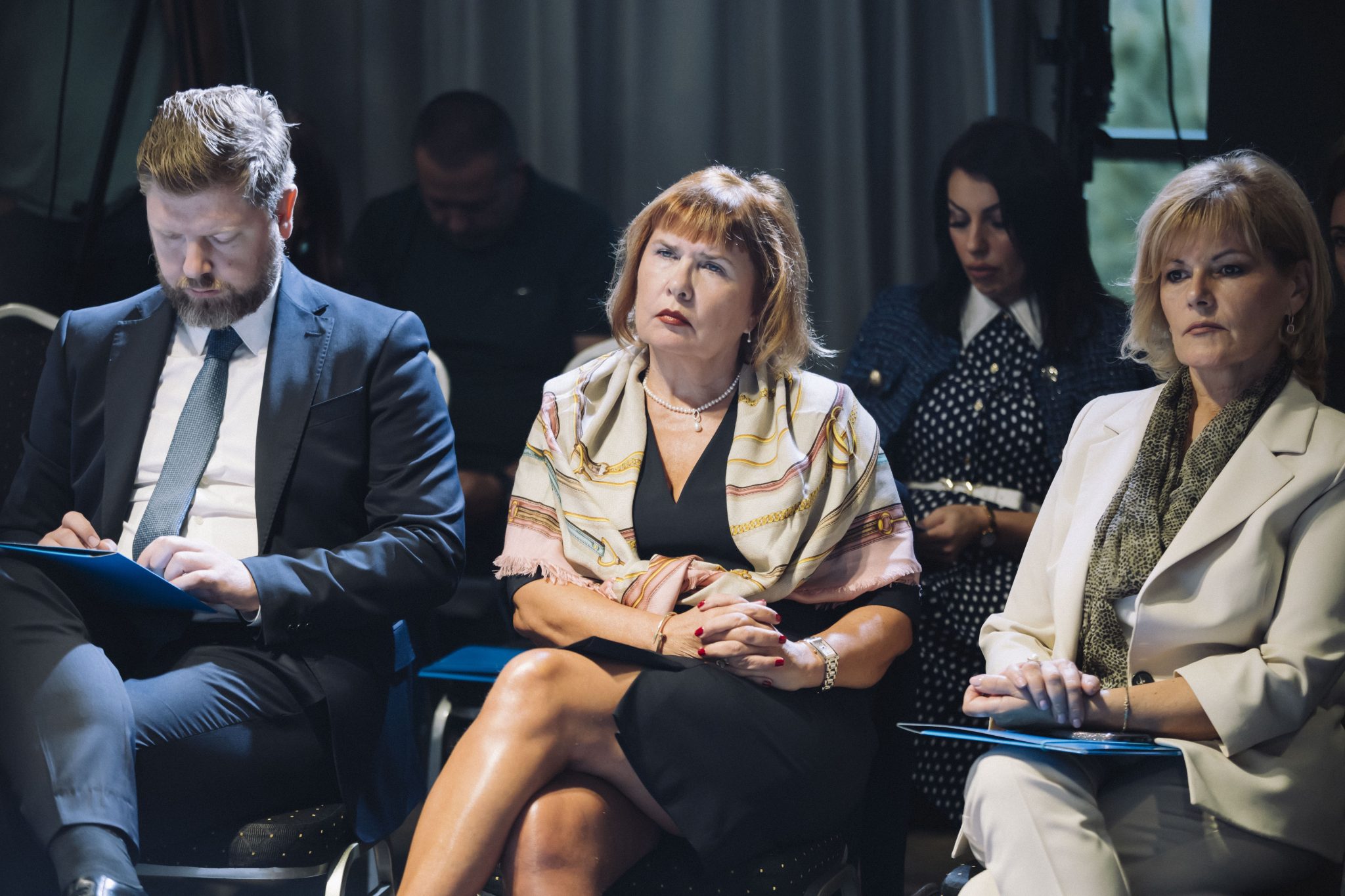
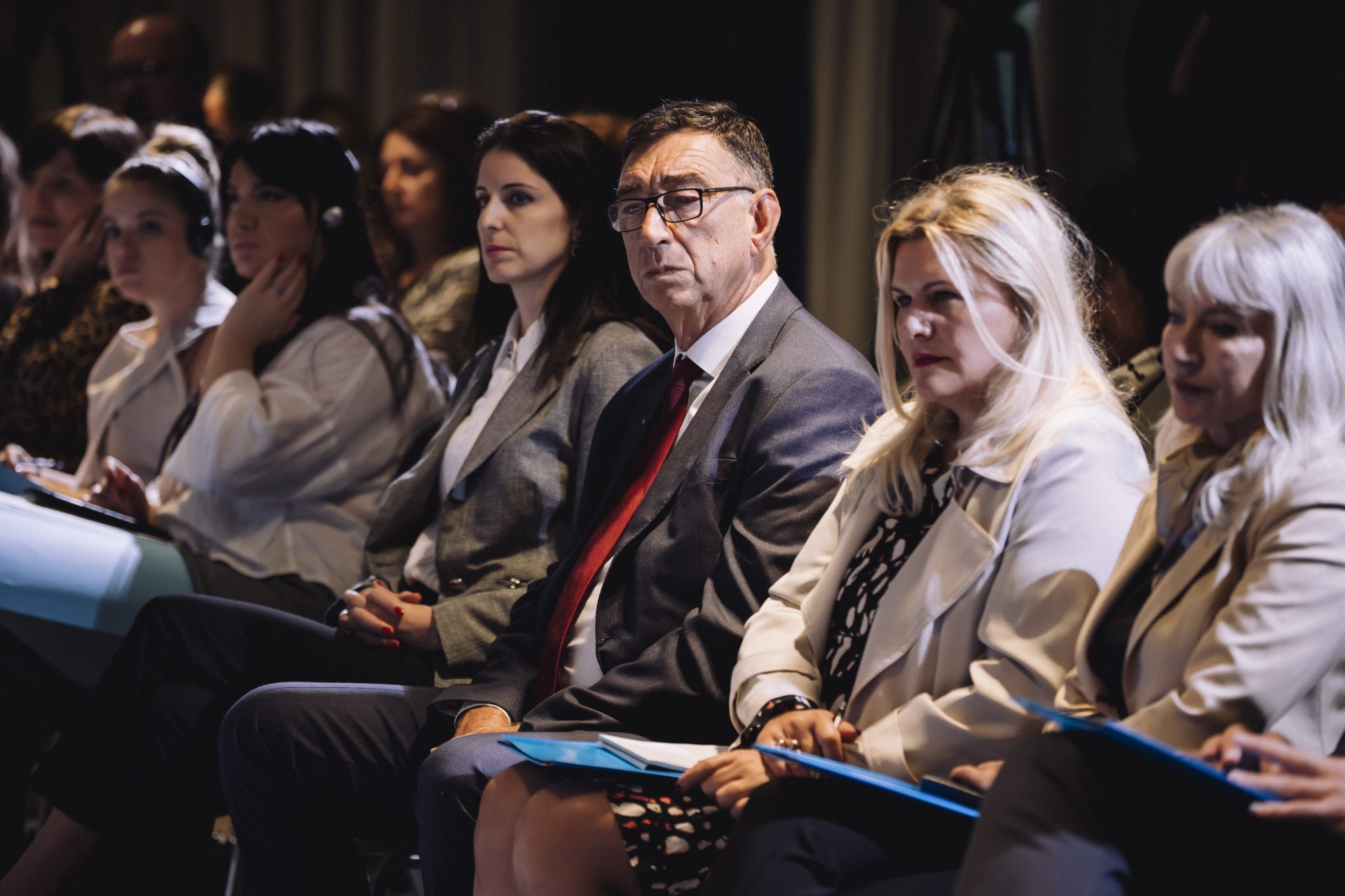
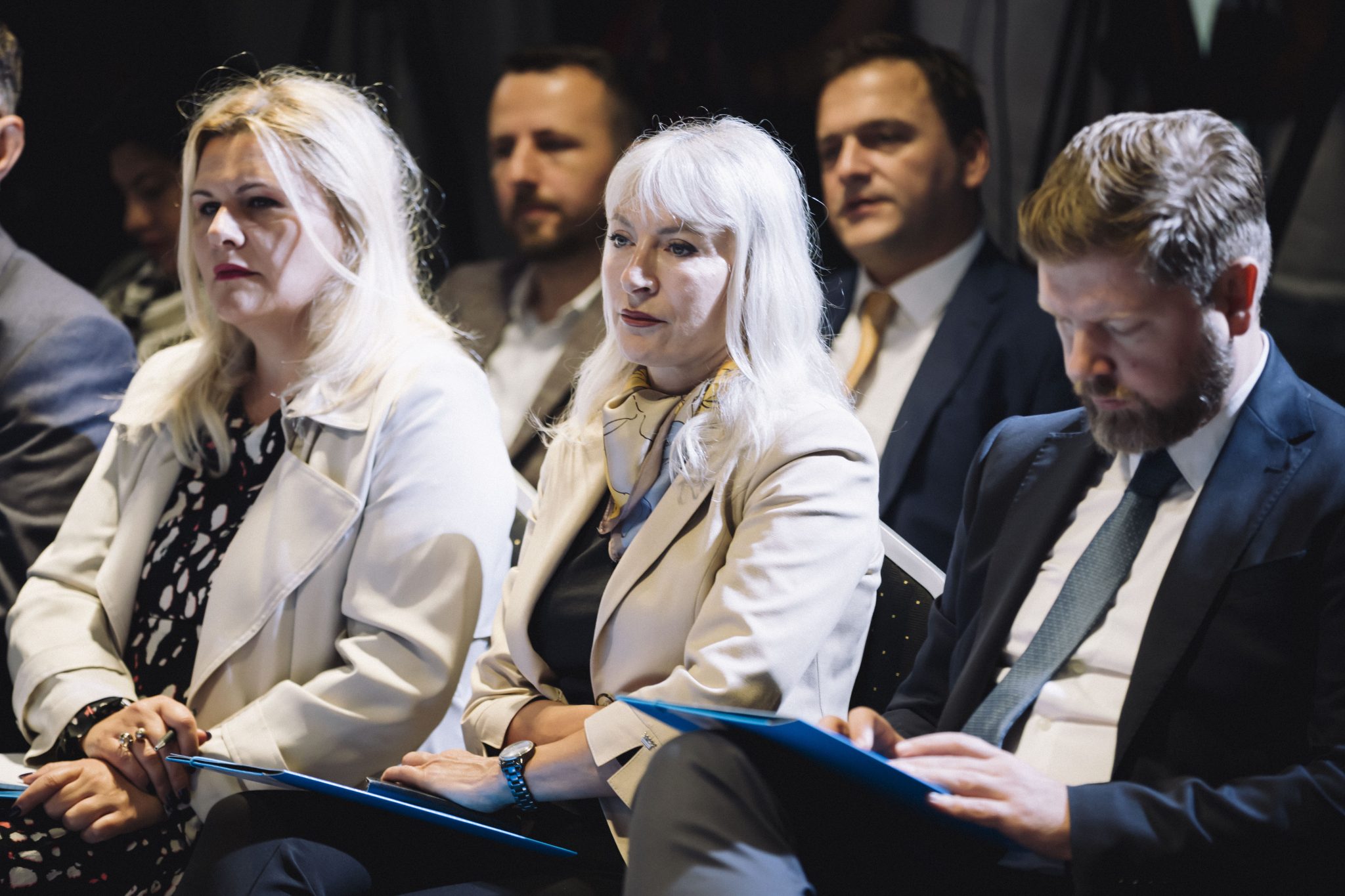
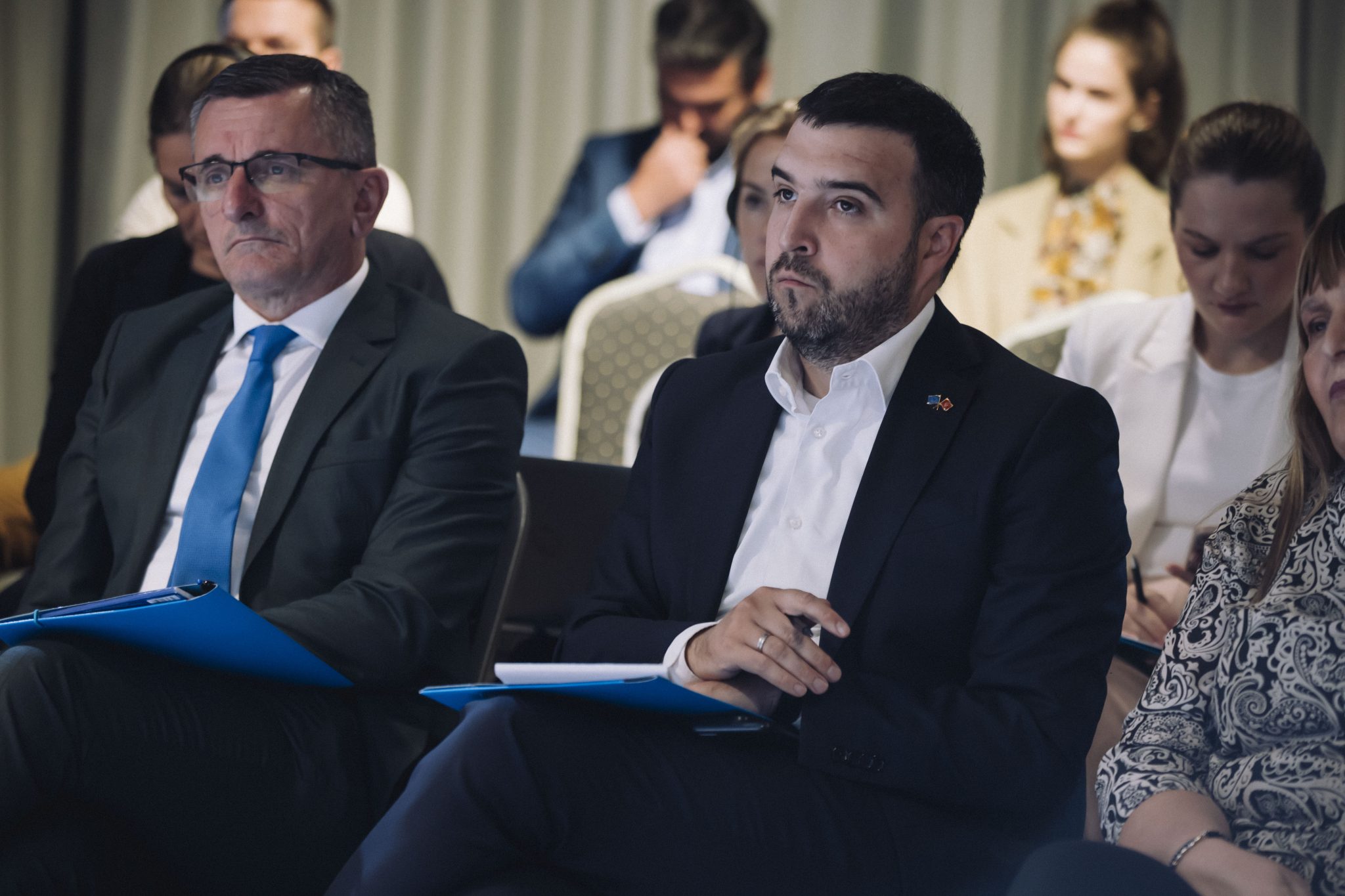
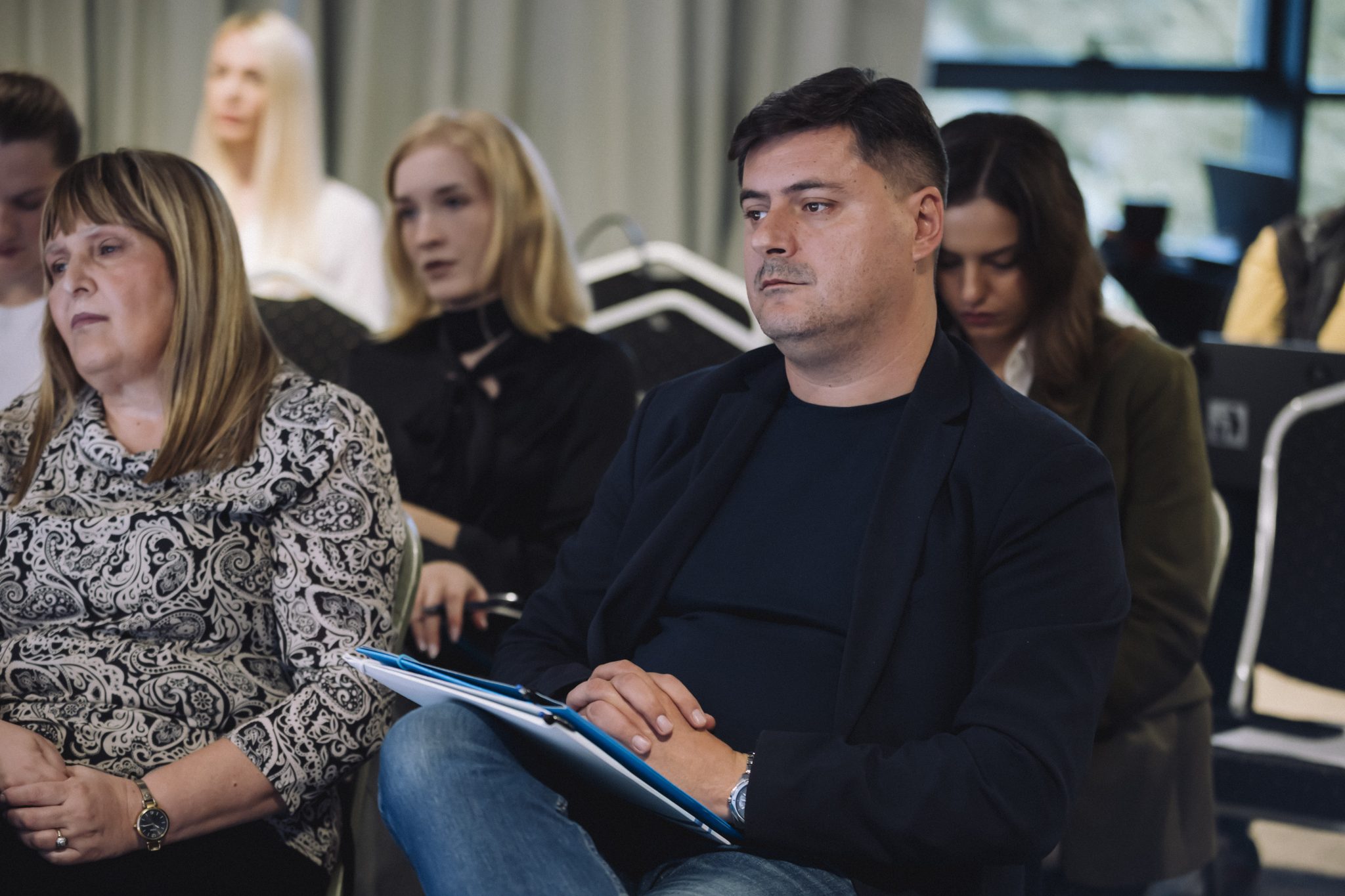
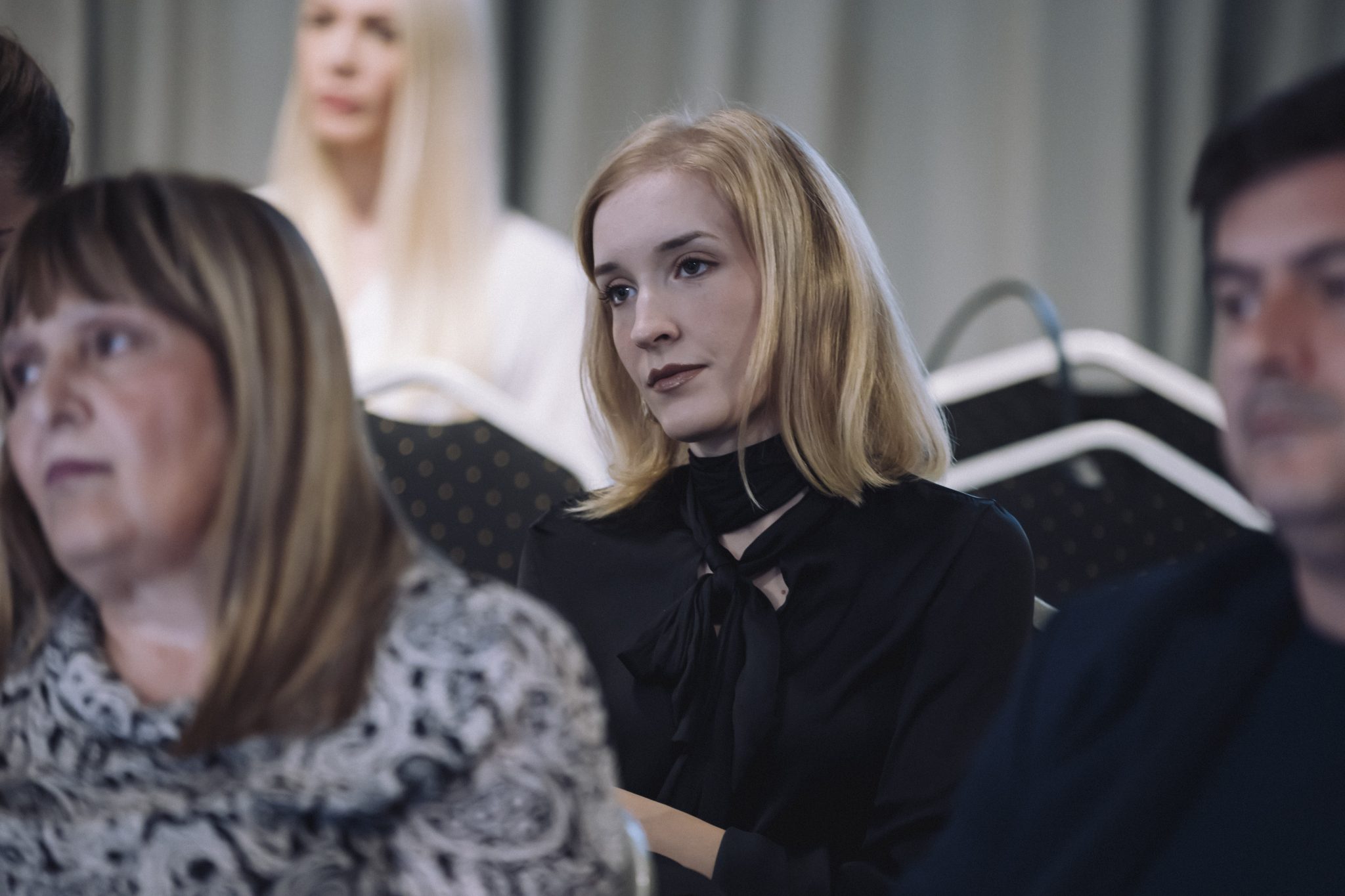
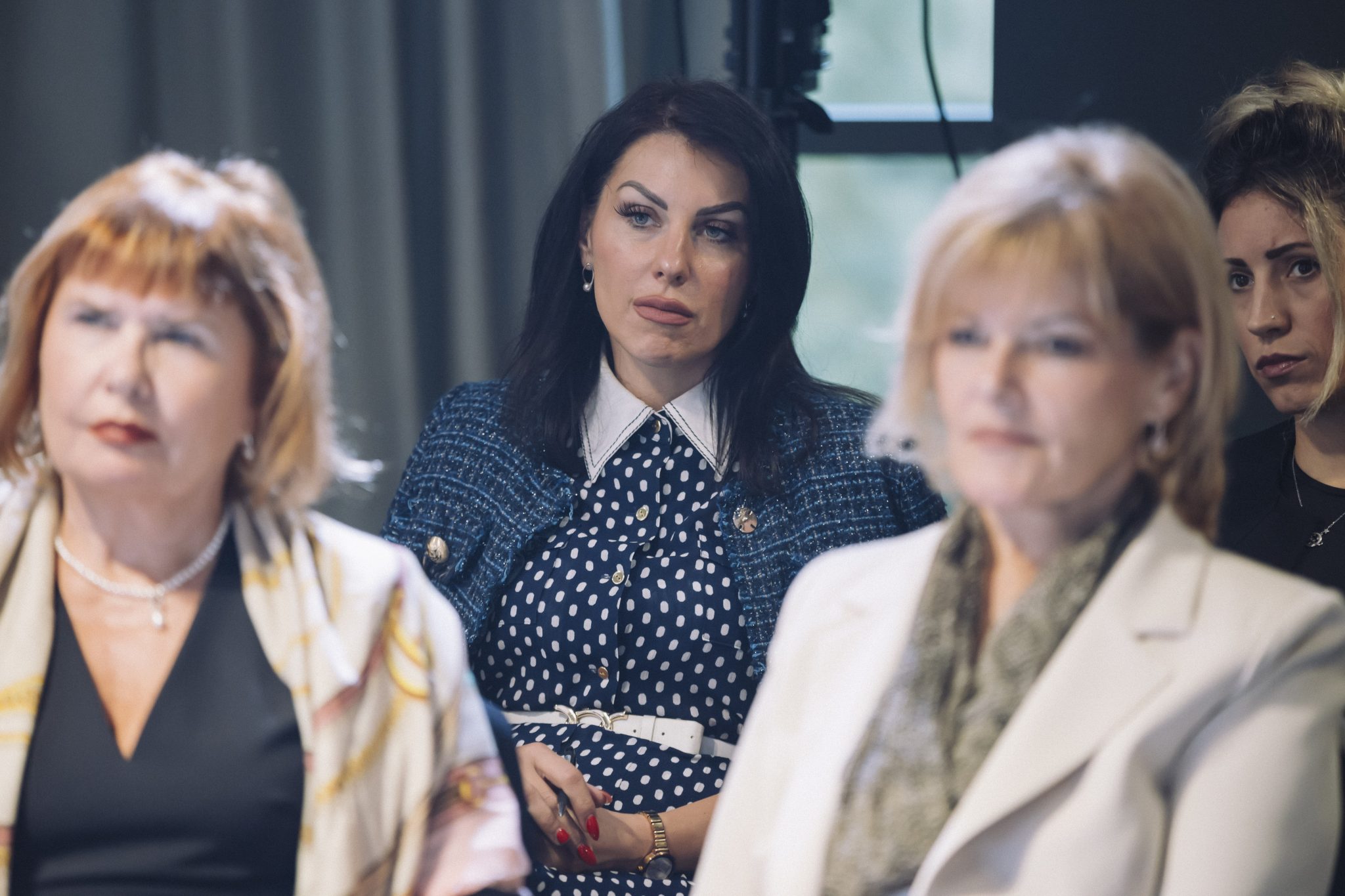
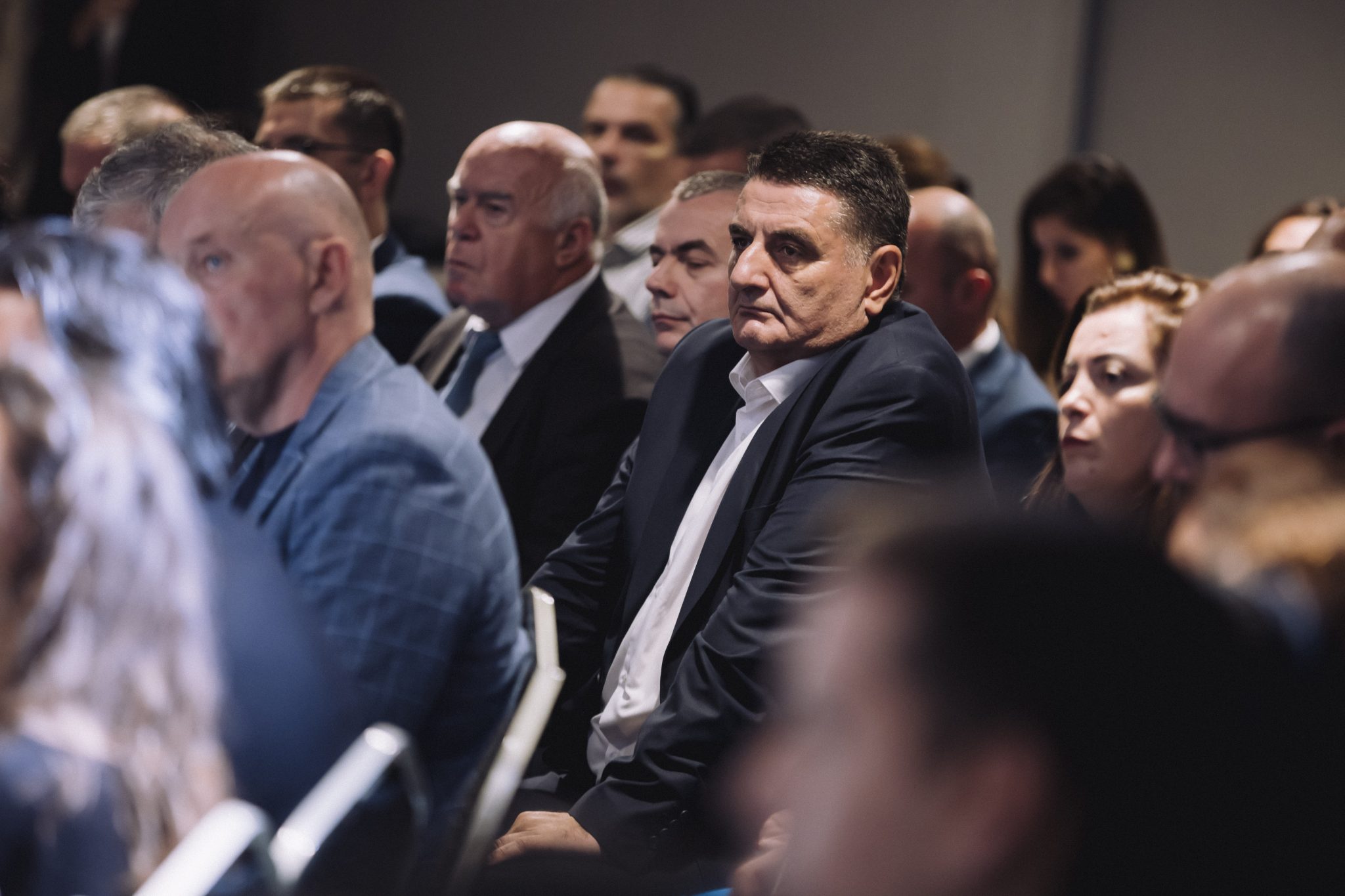
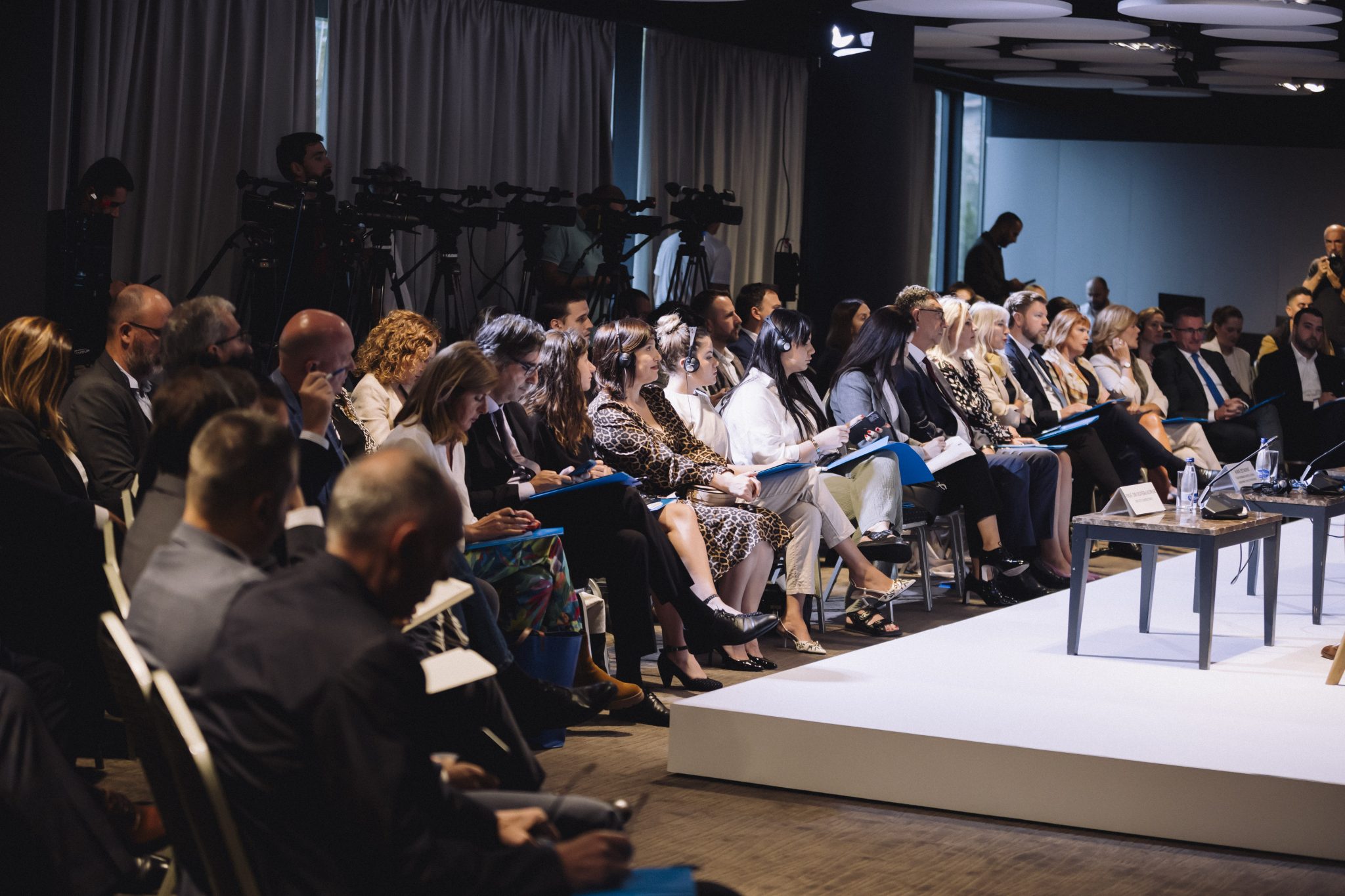
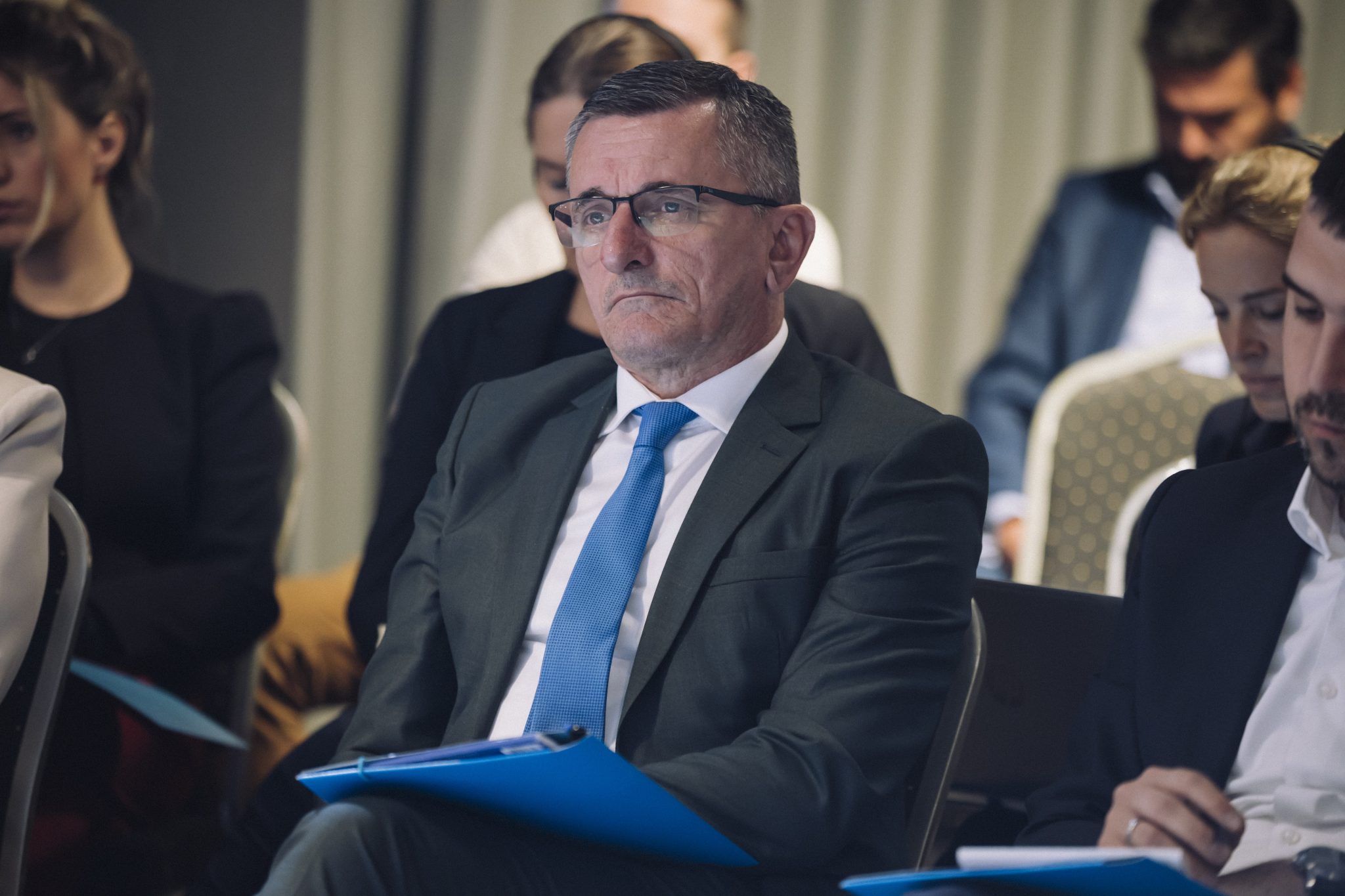

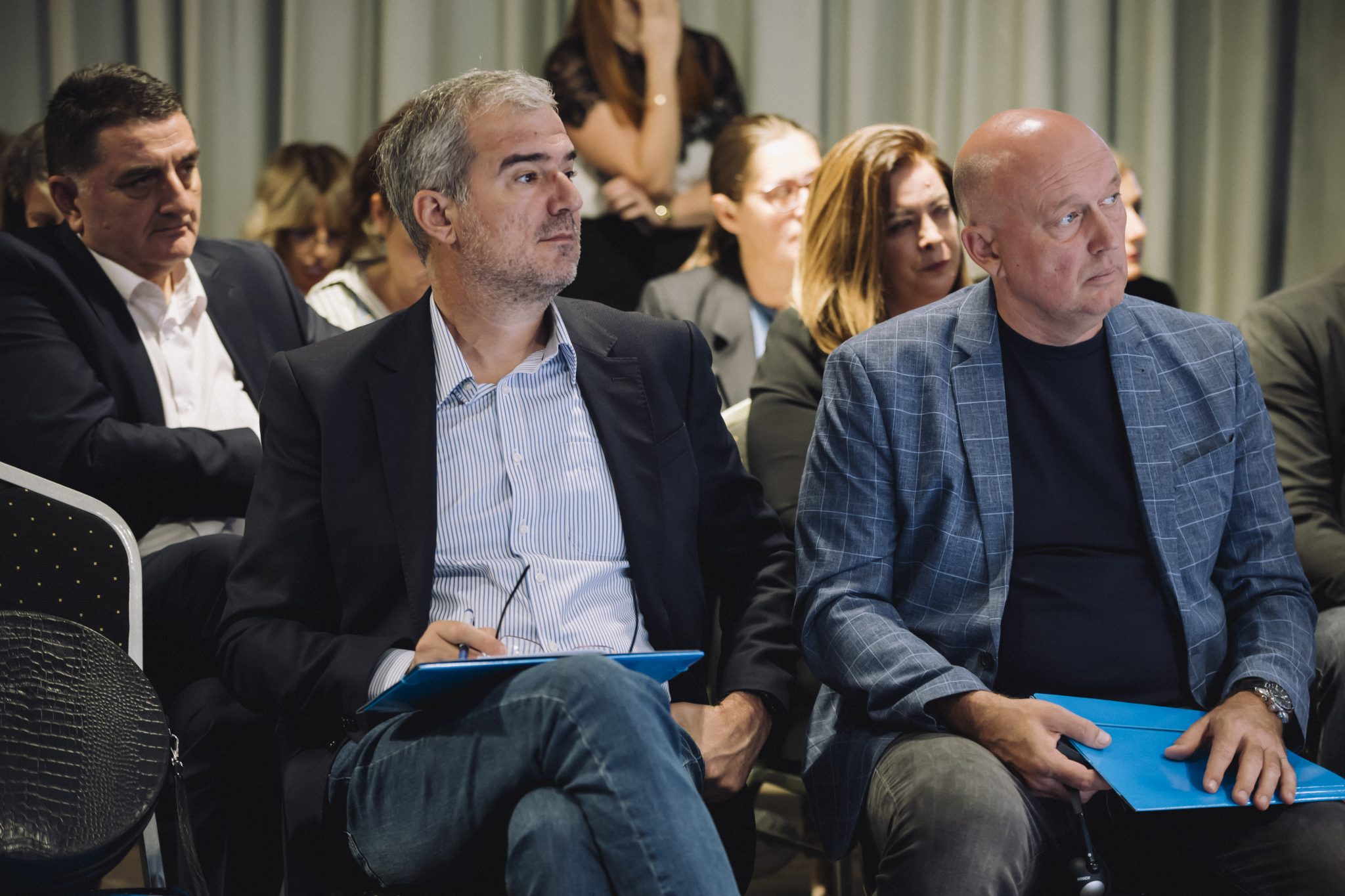
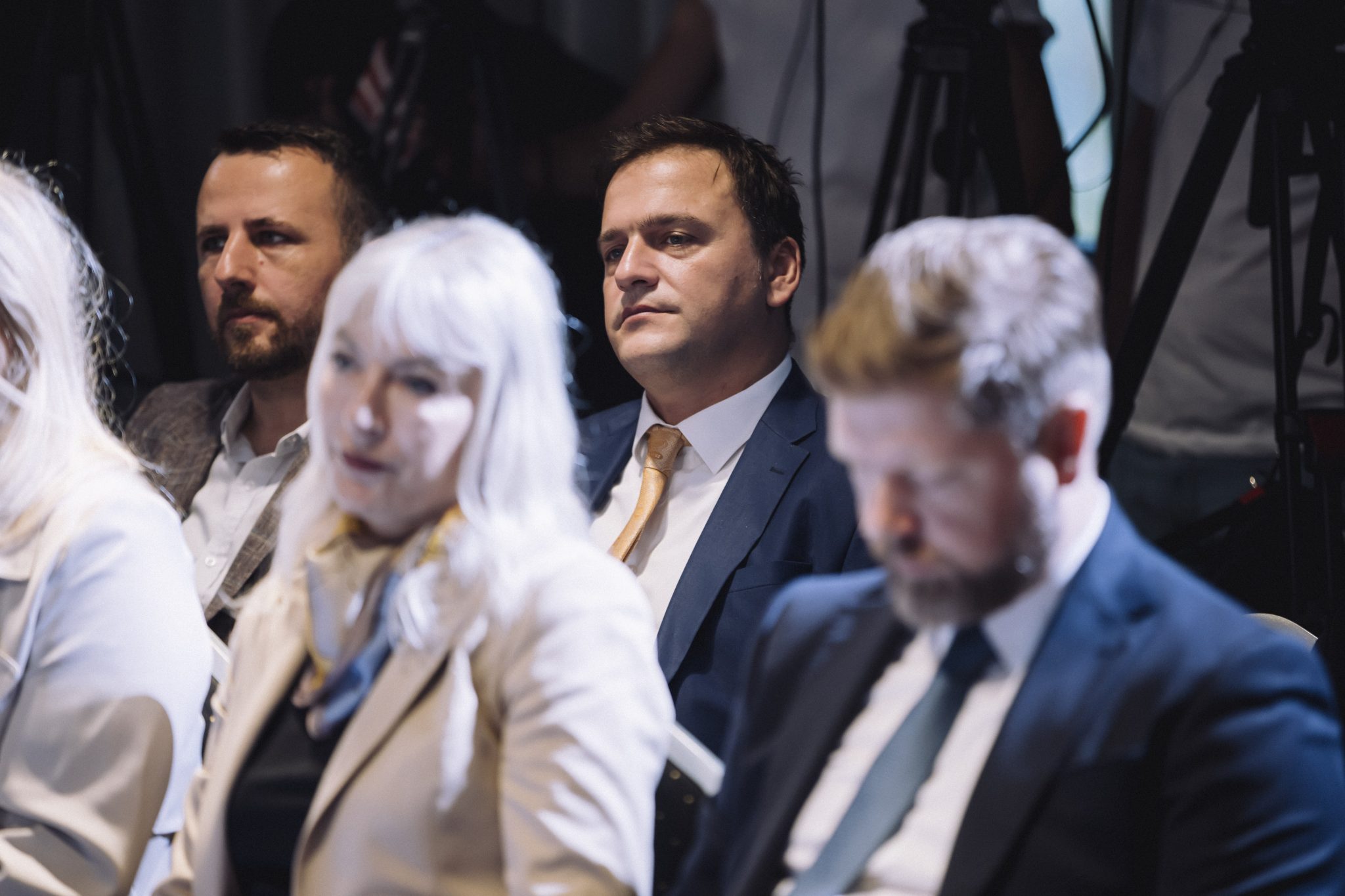
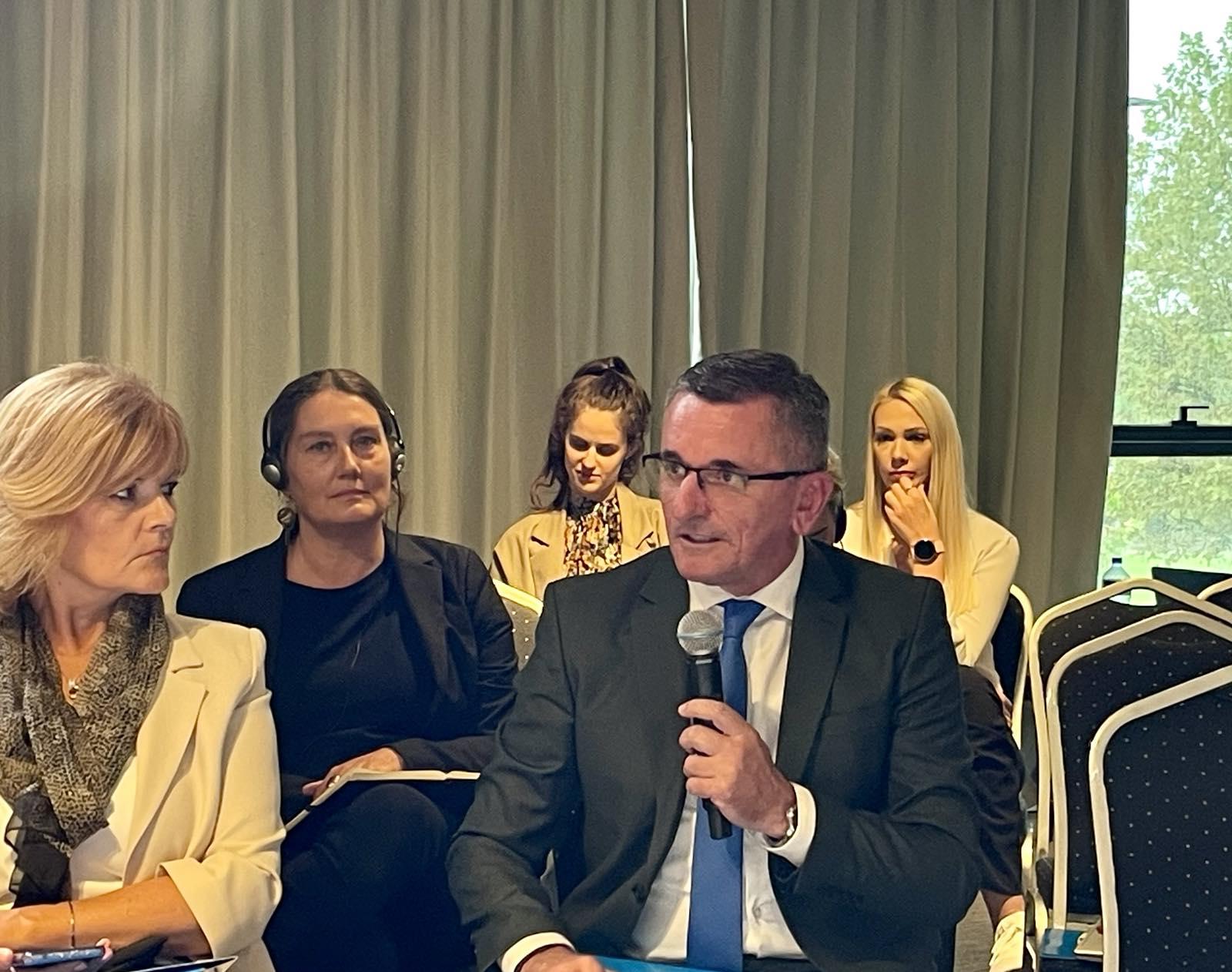
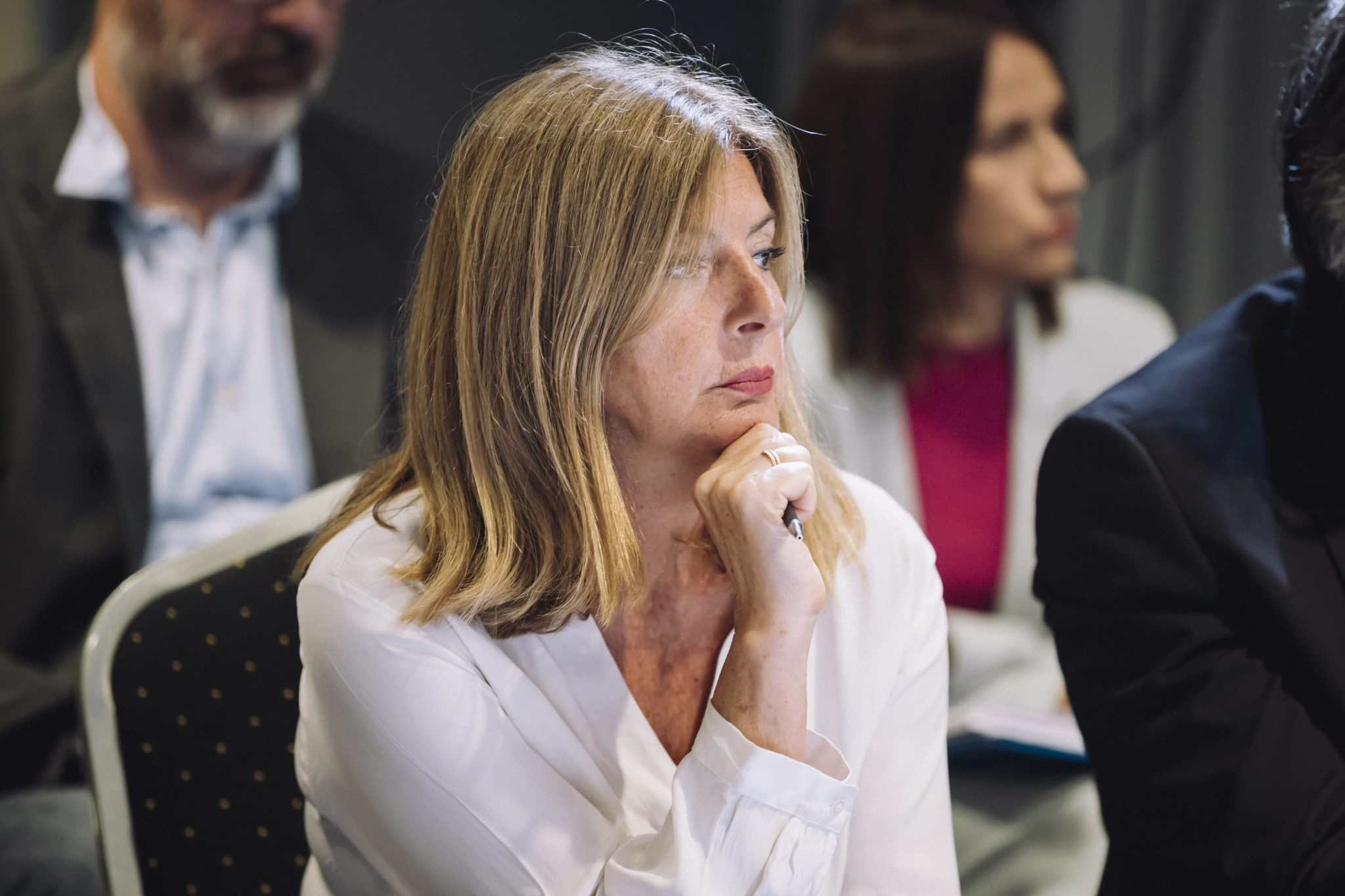
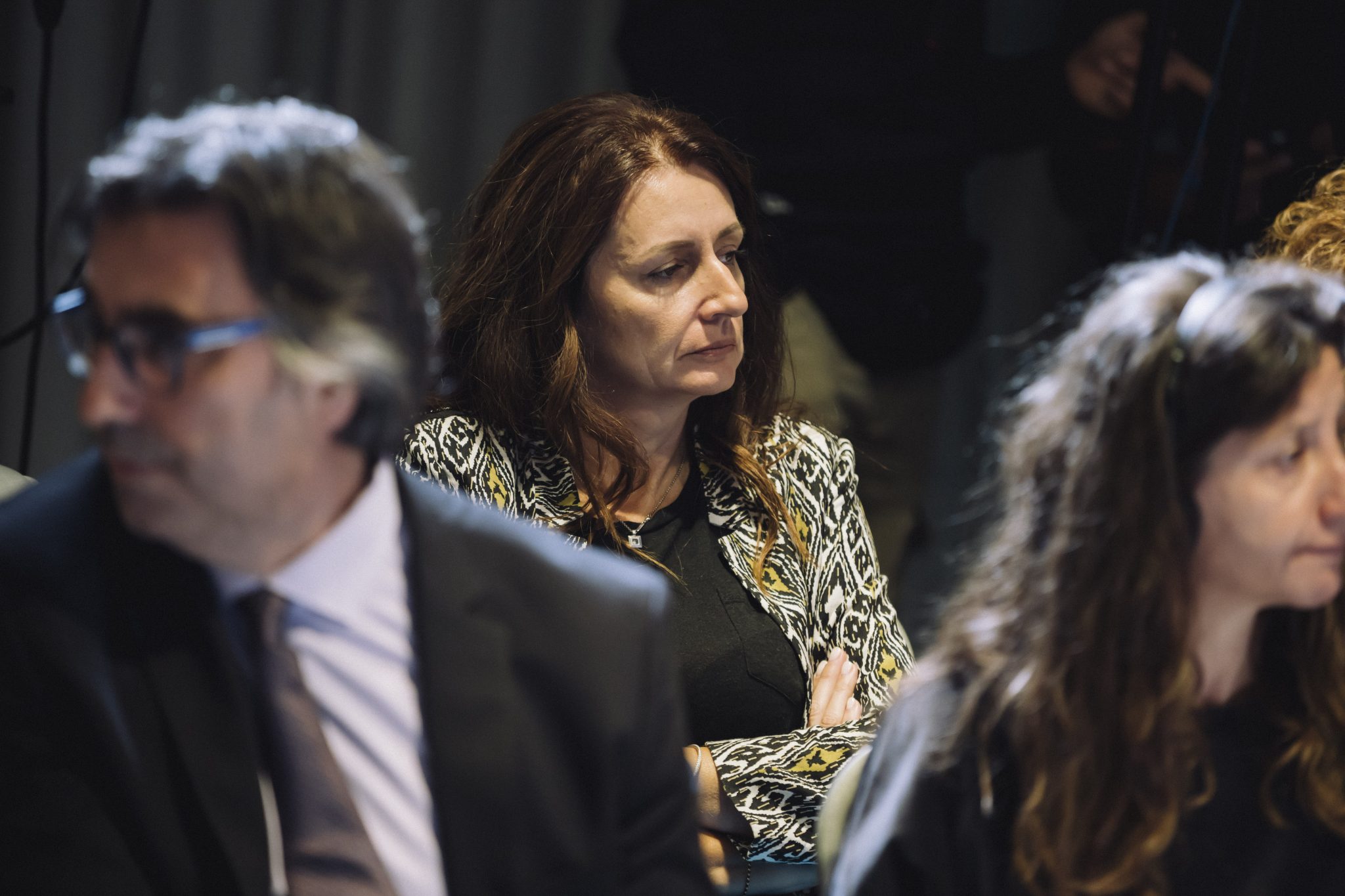





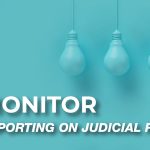

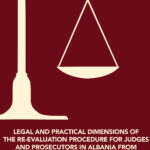
 English
English